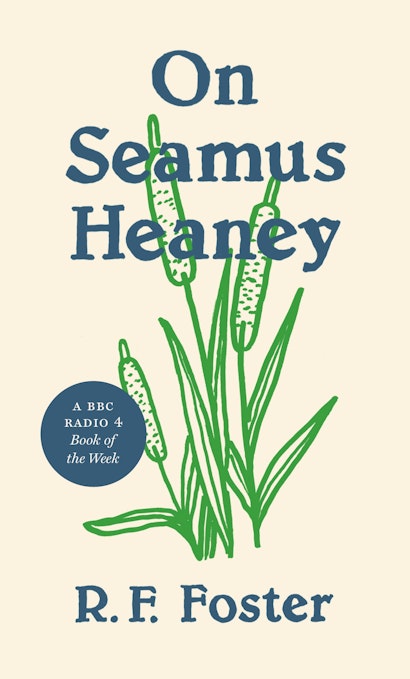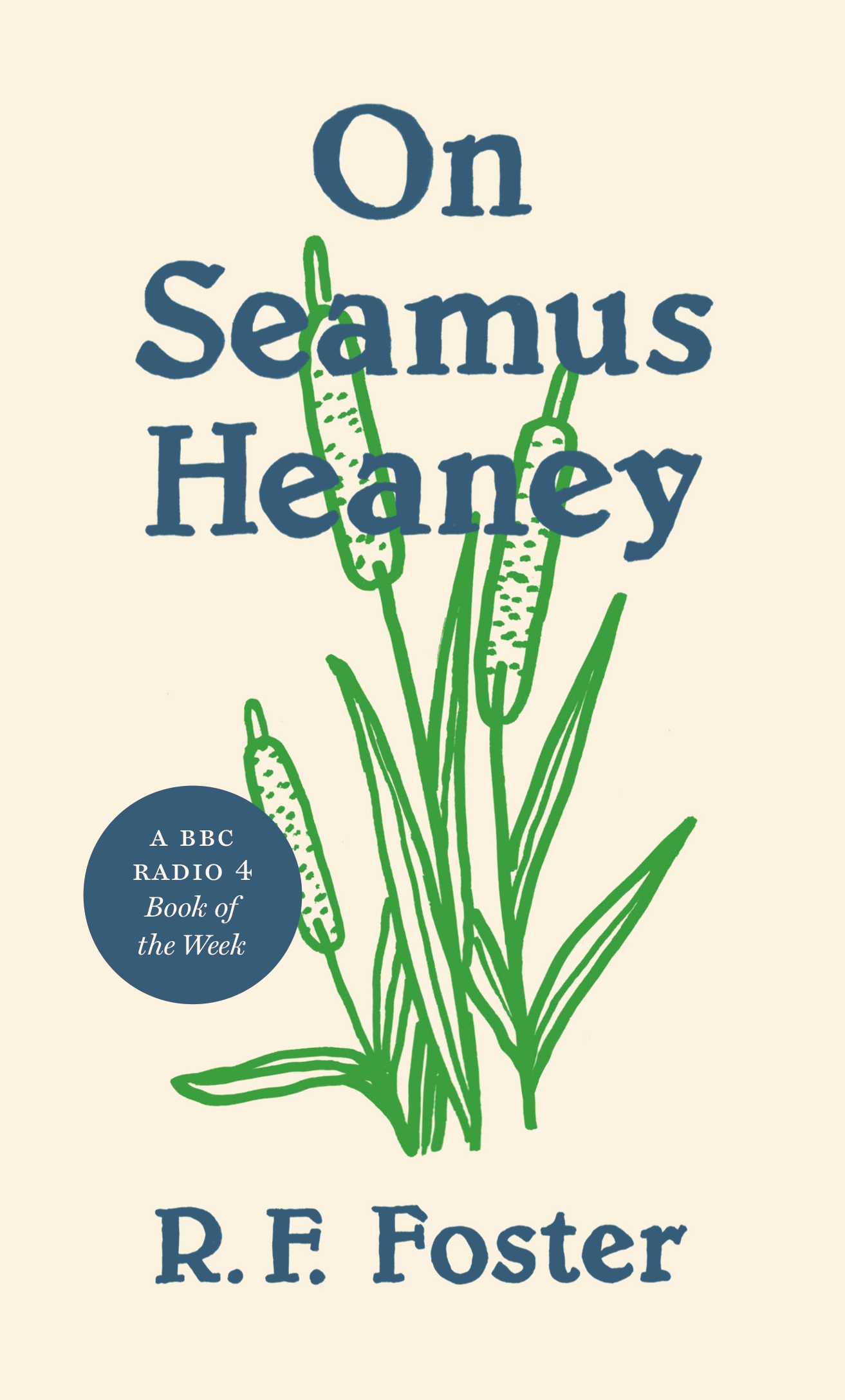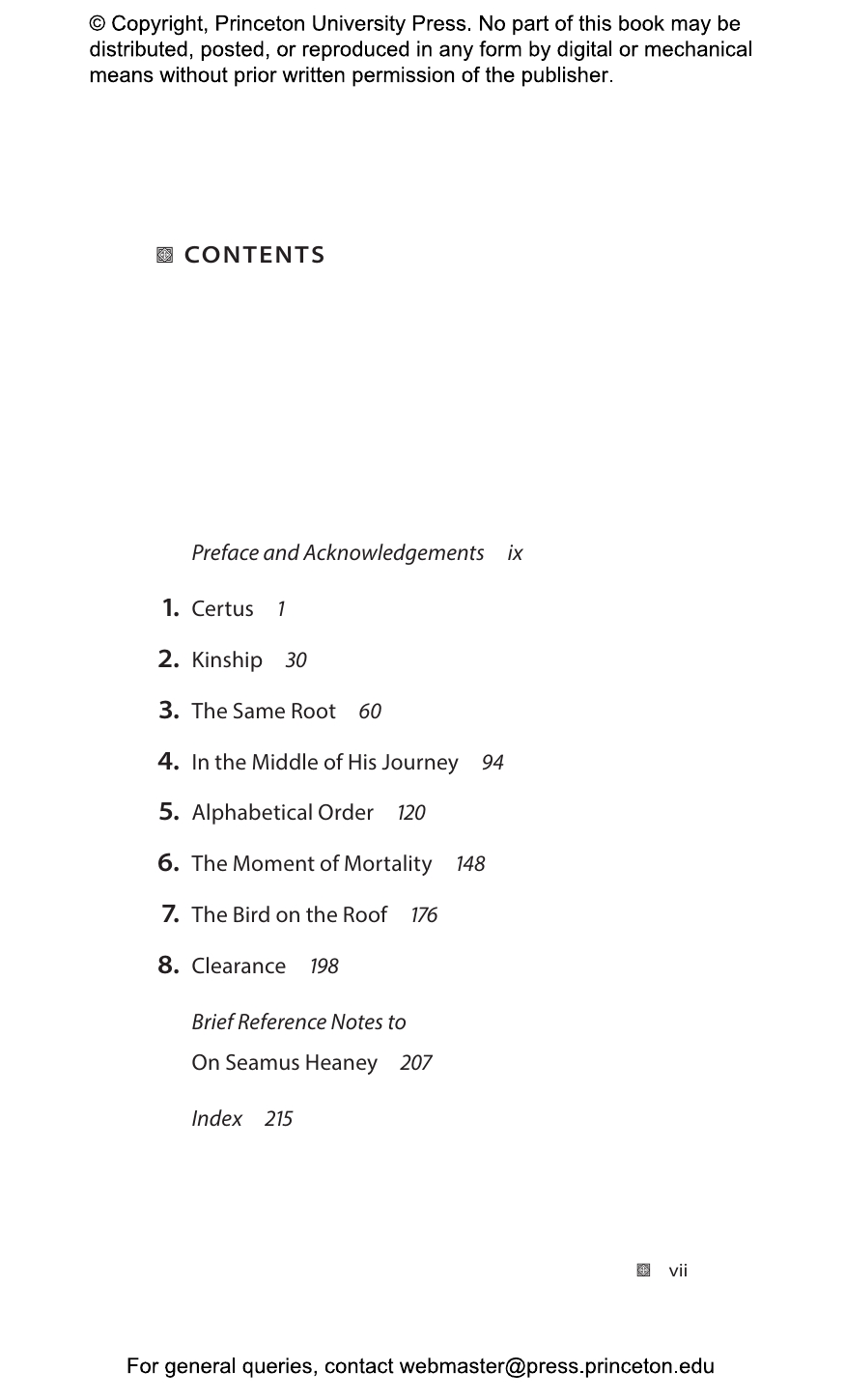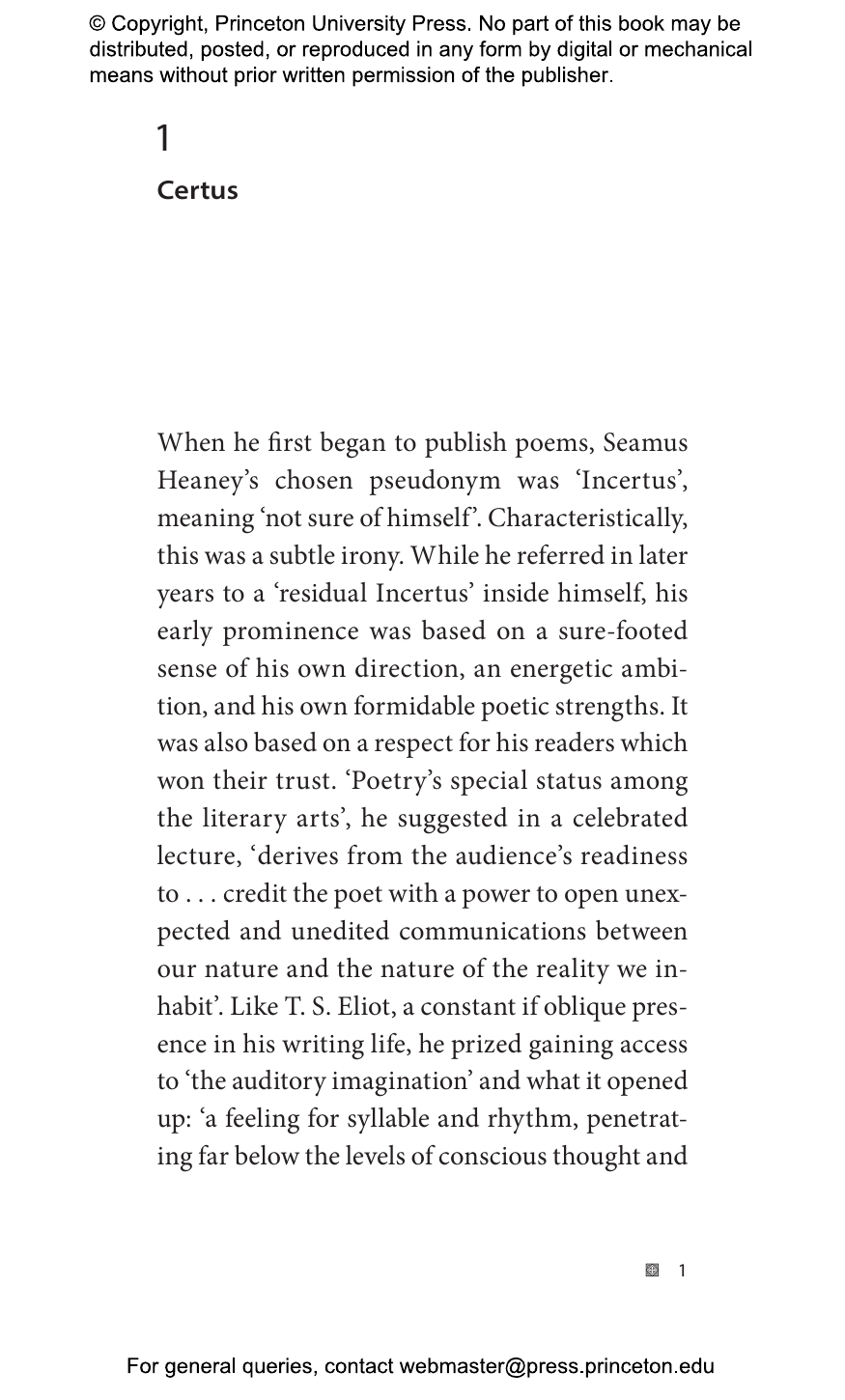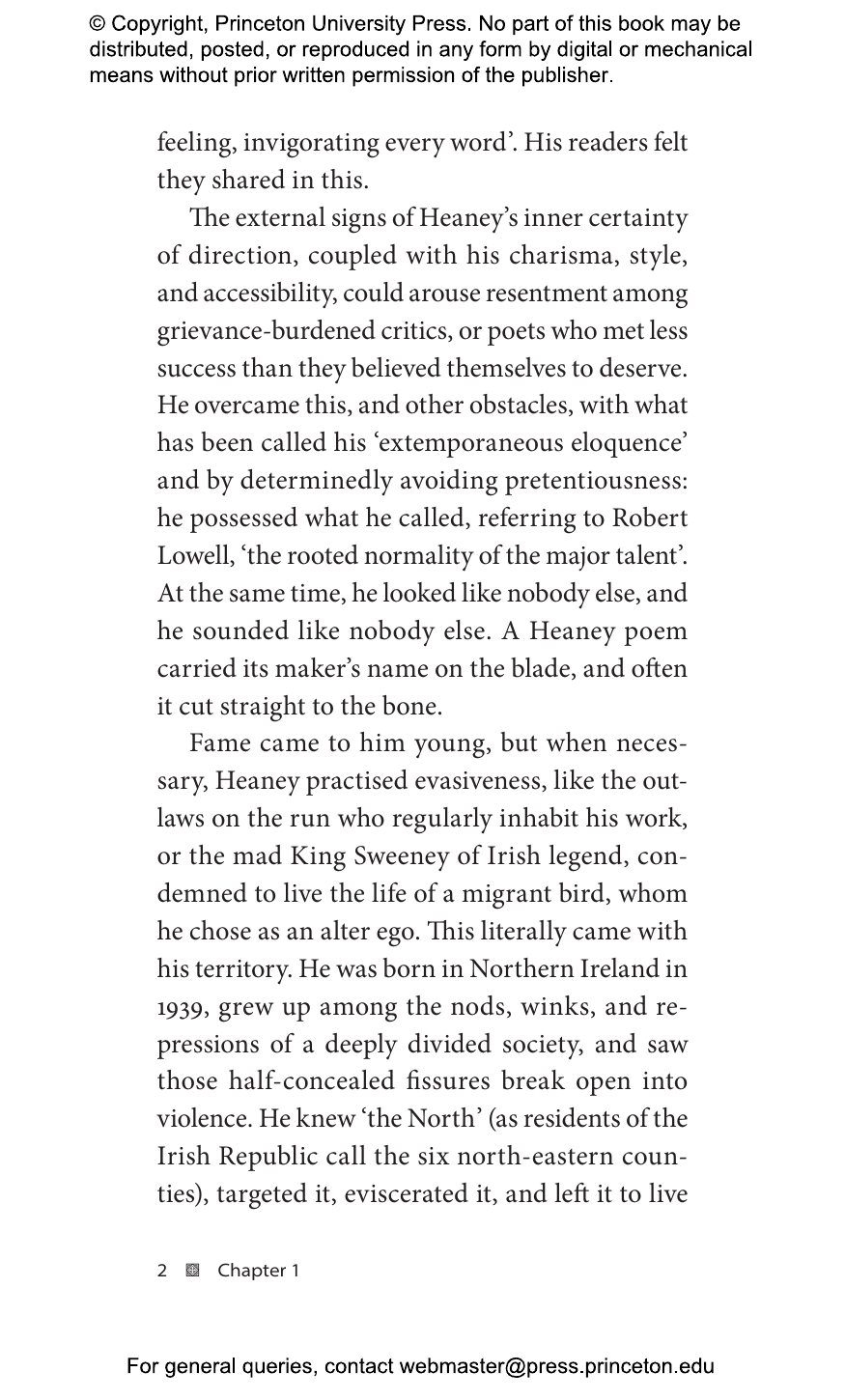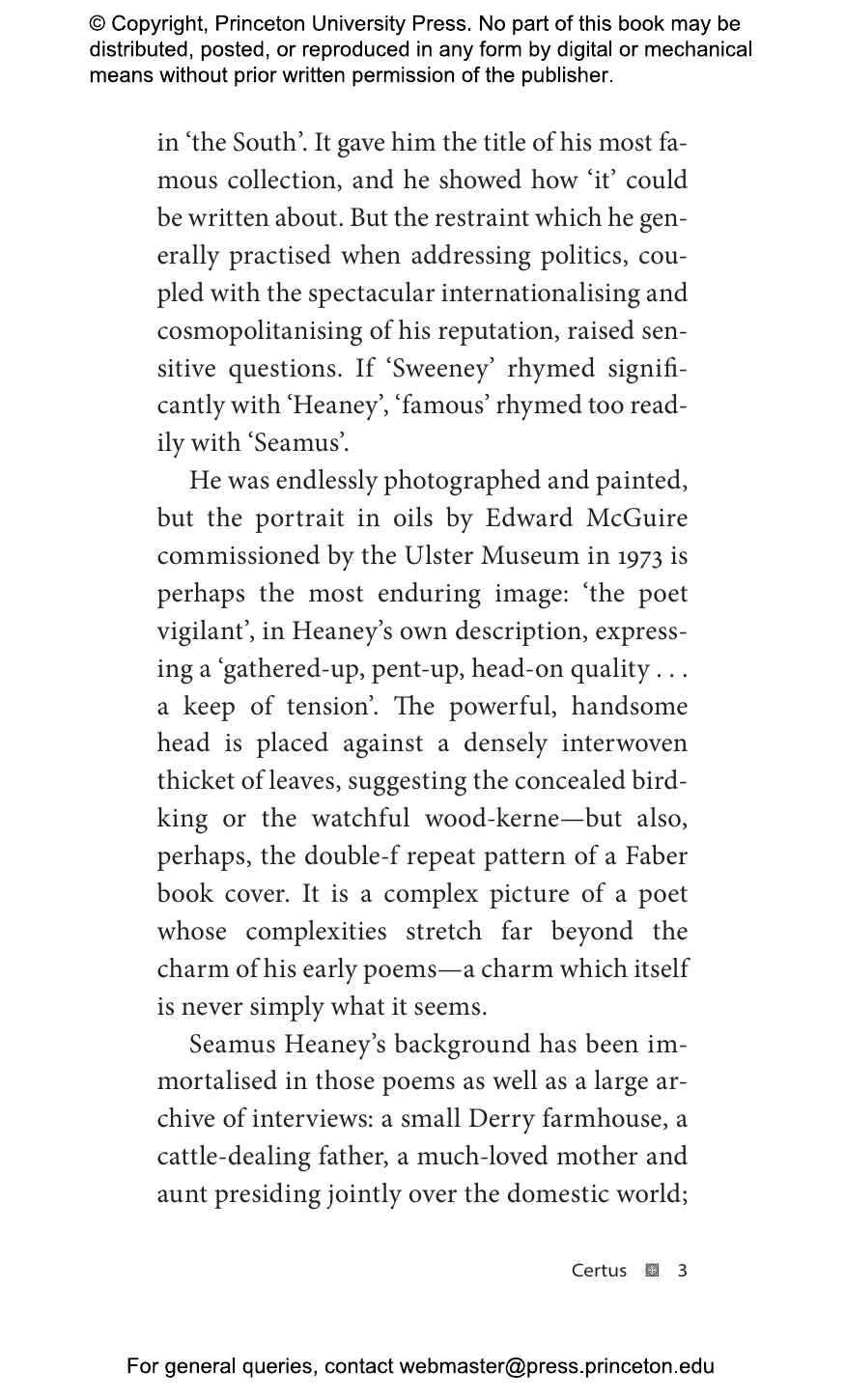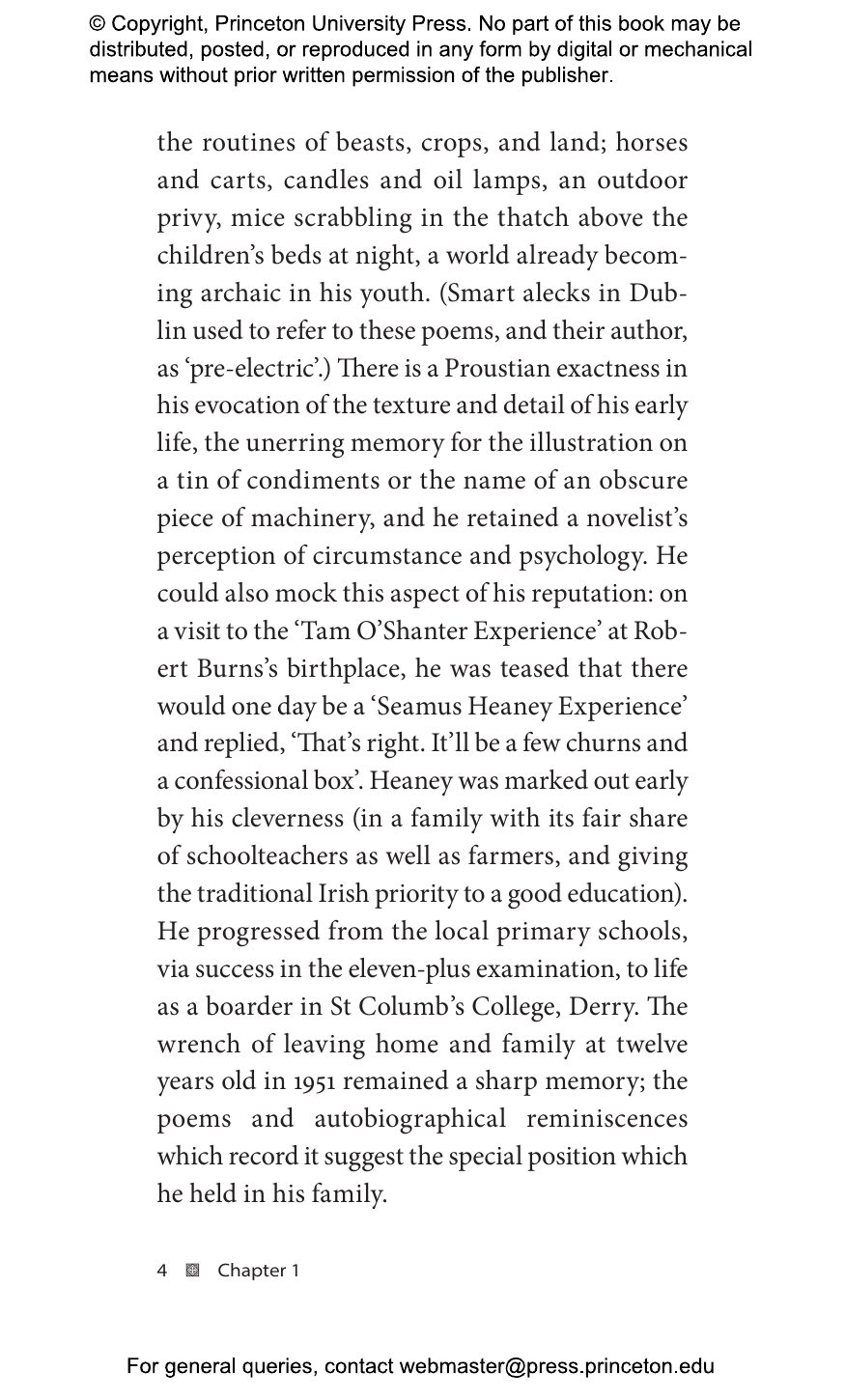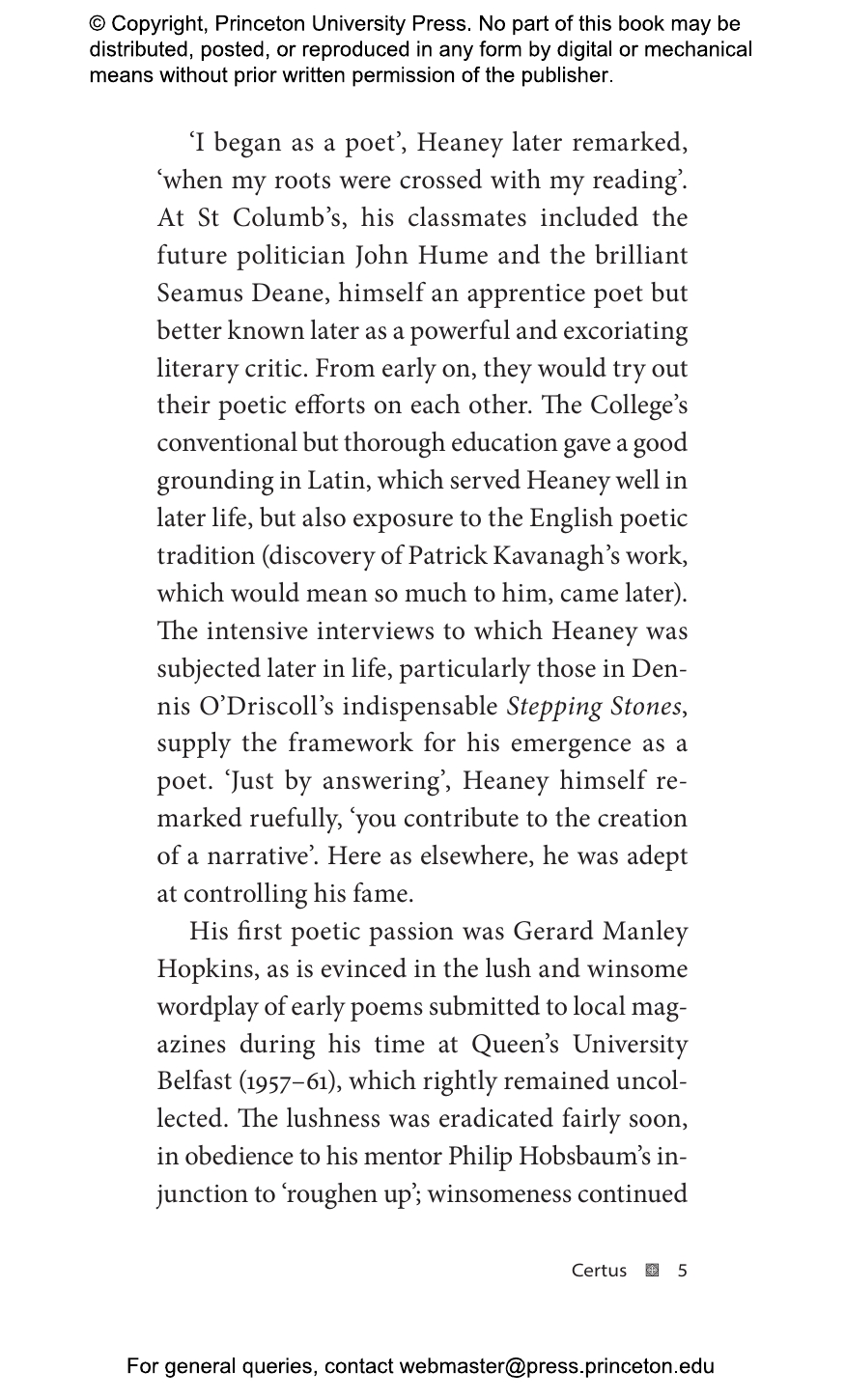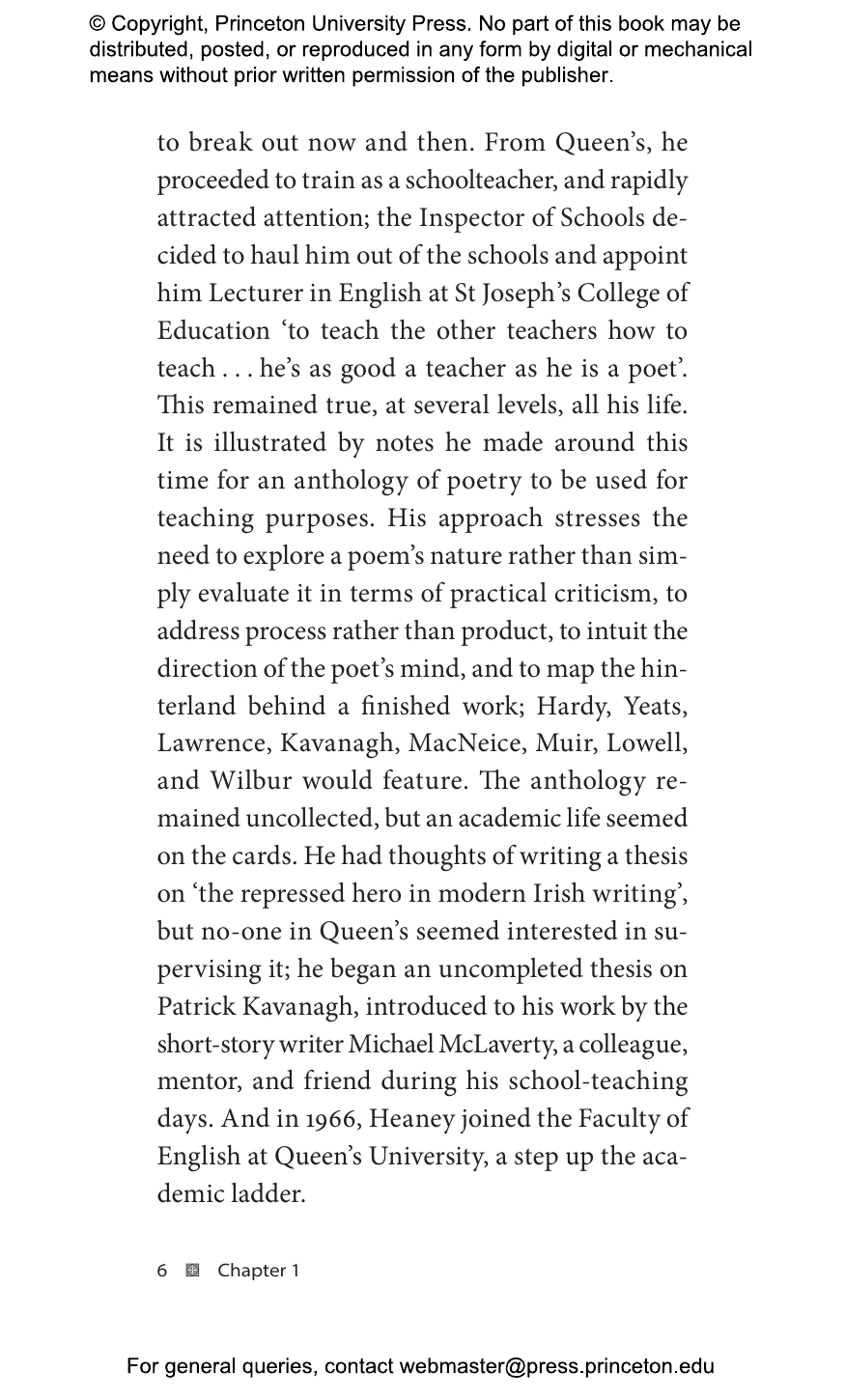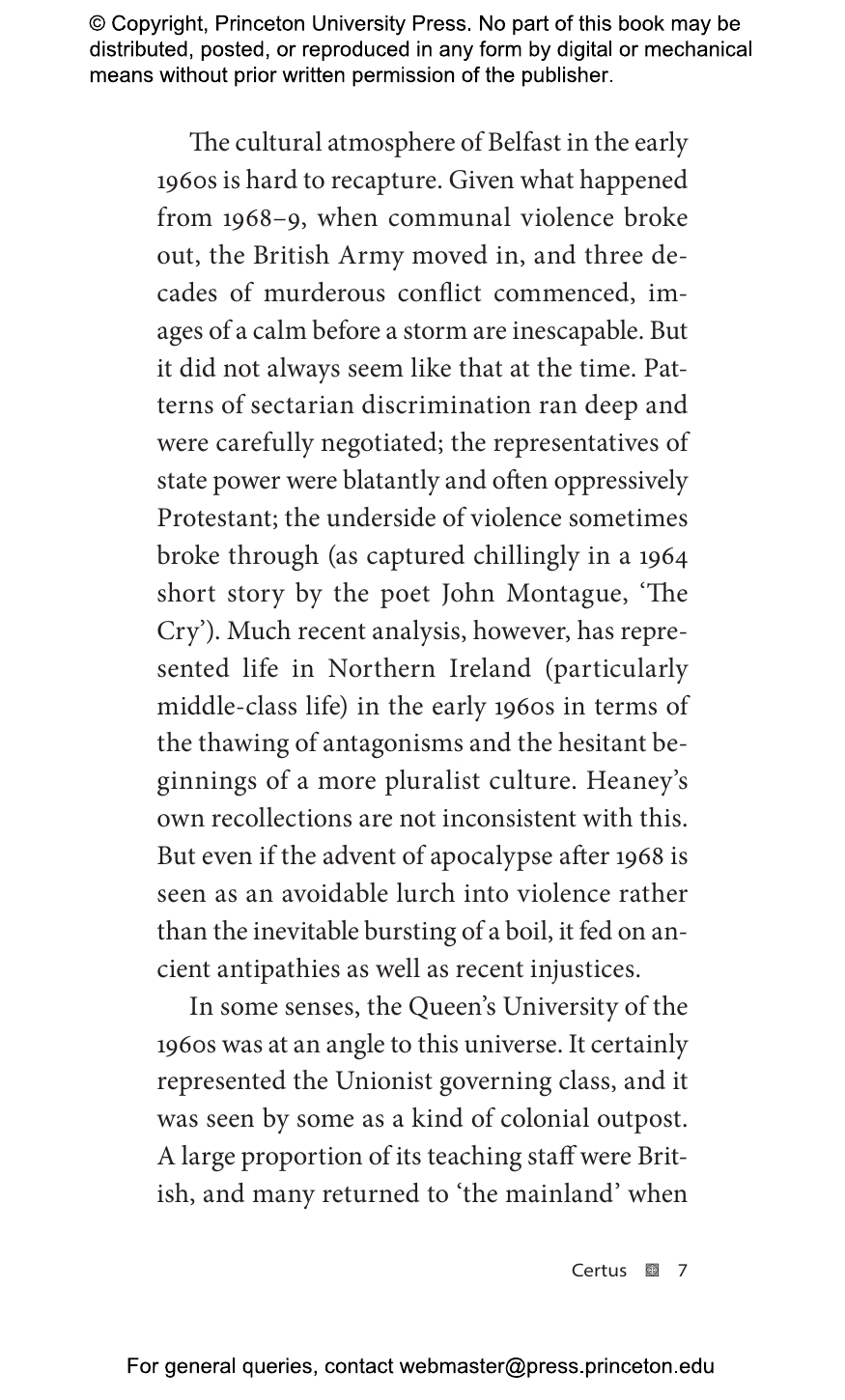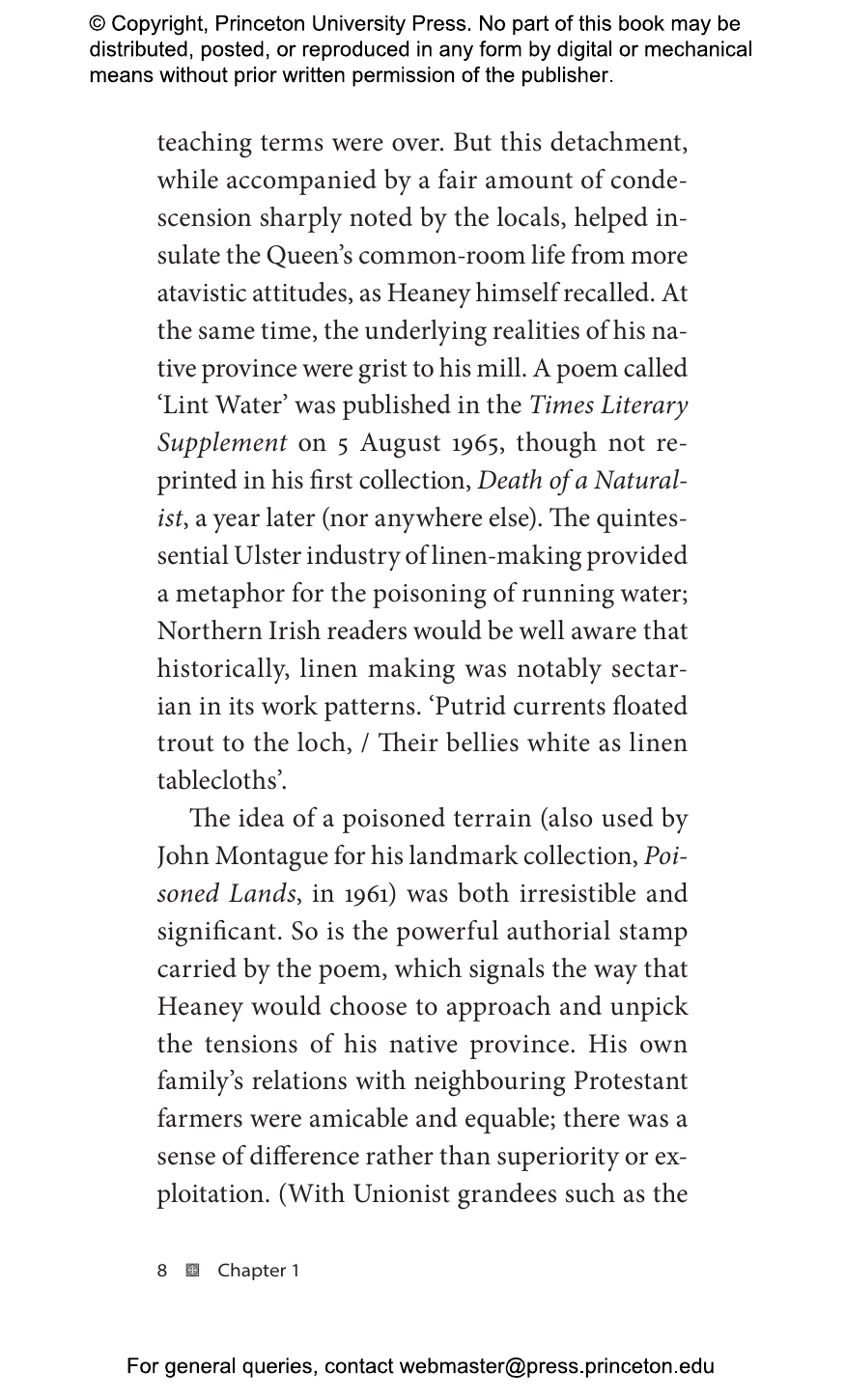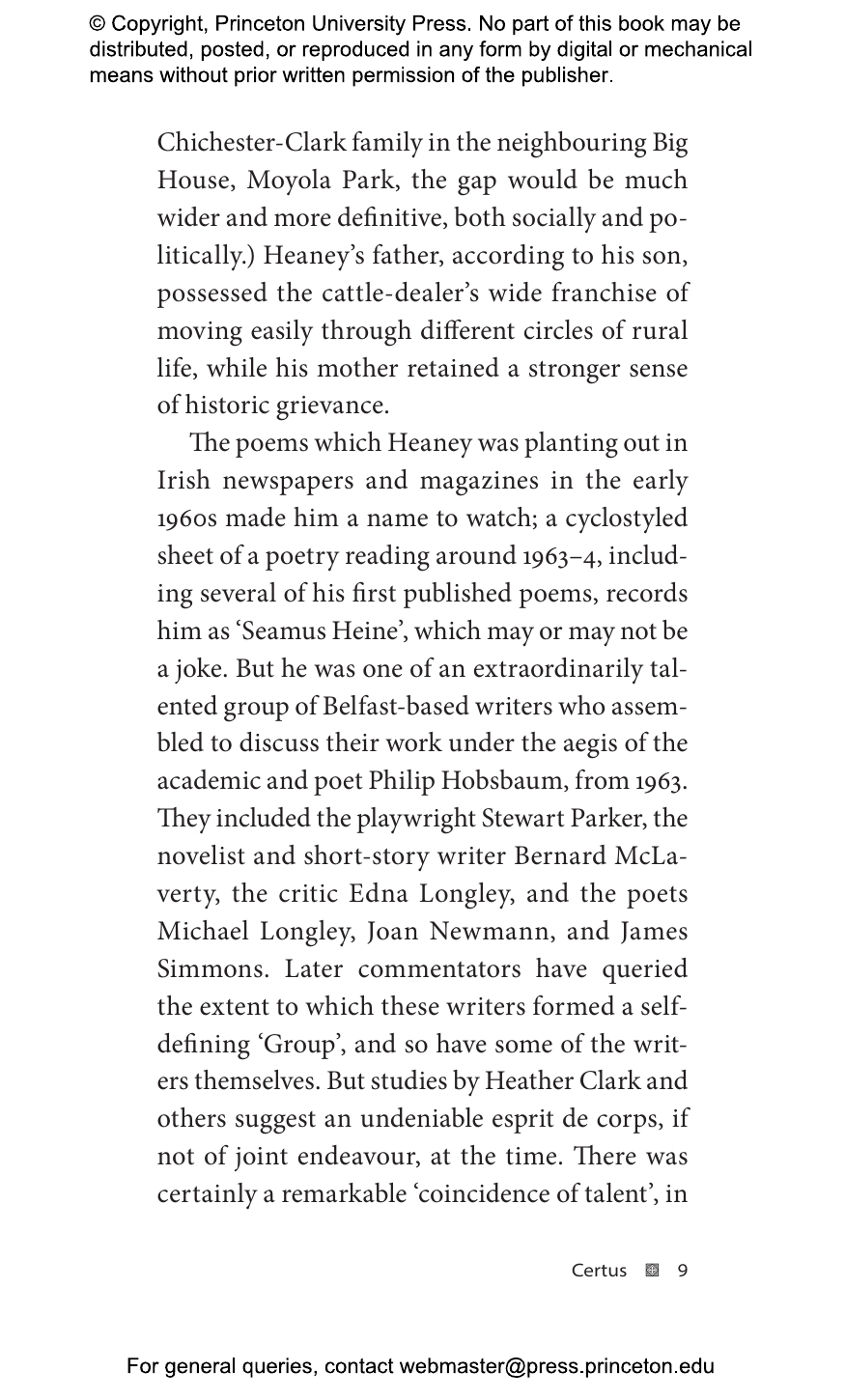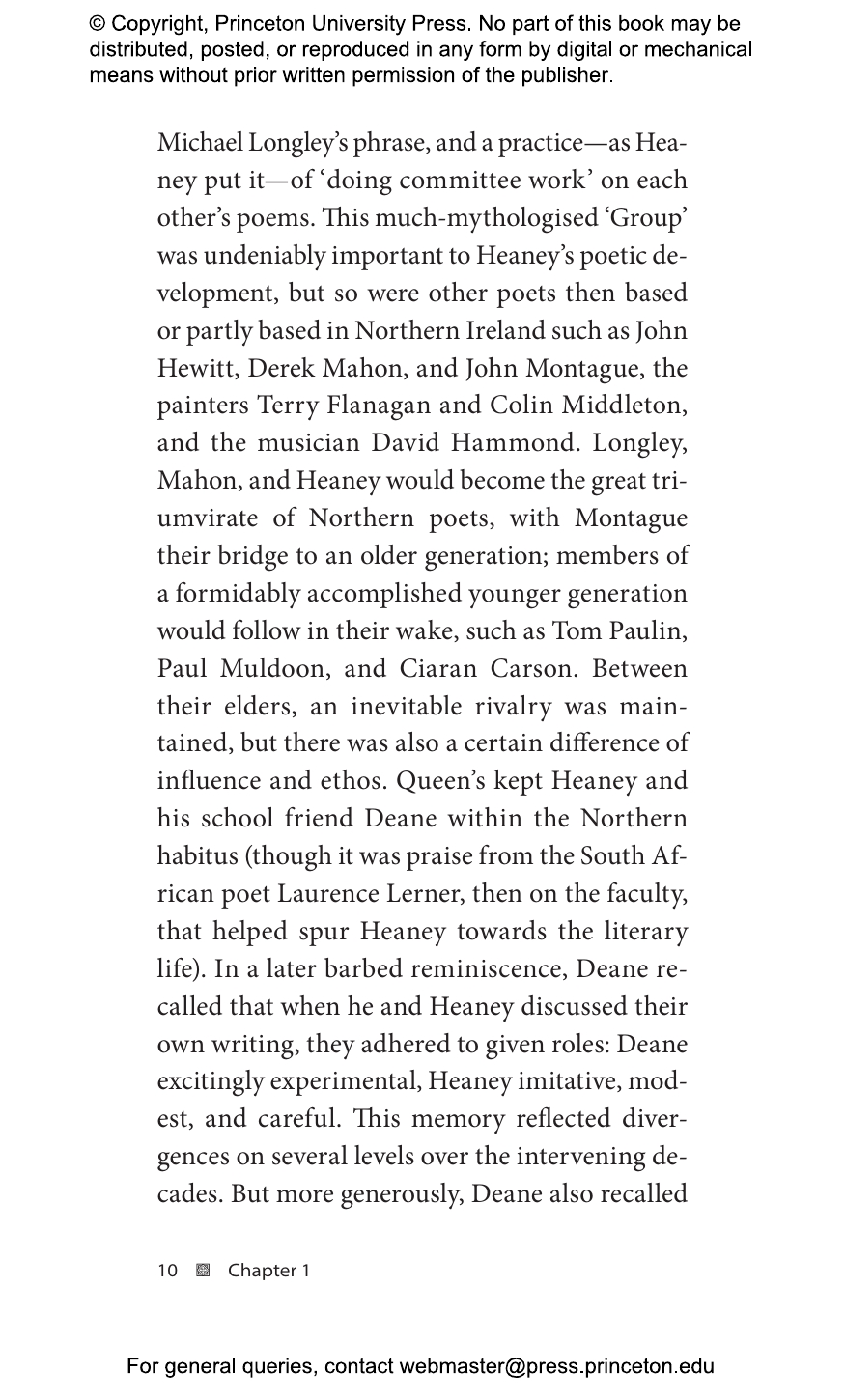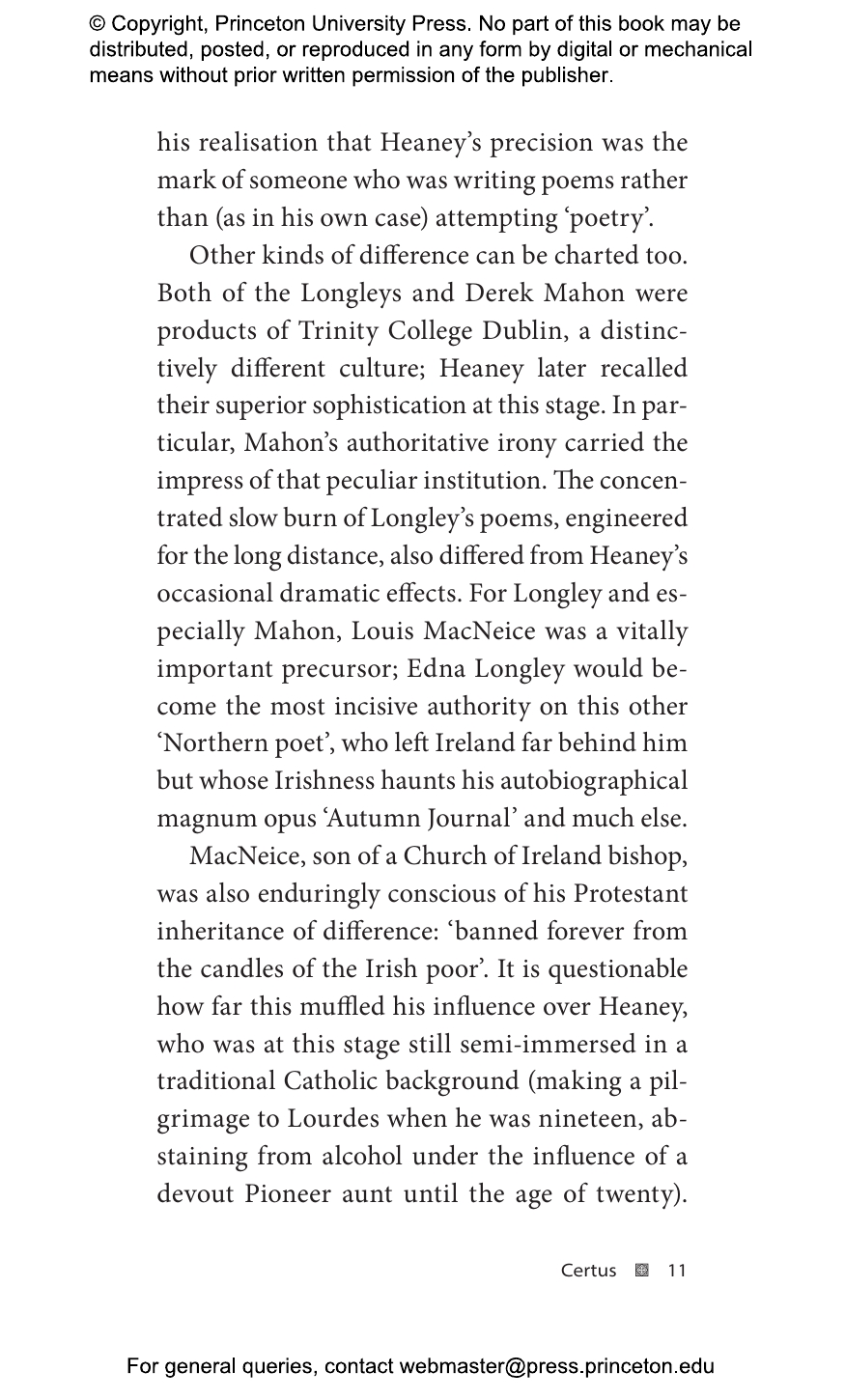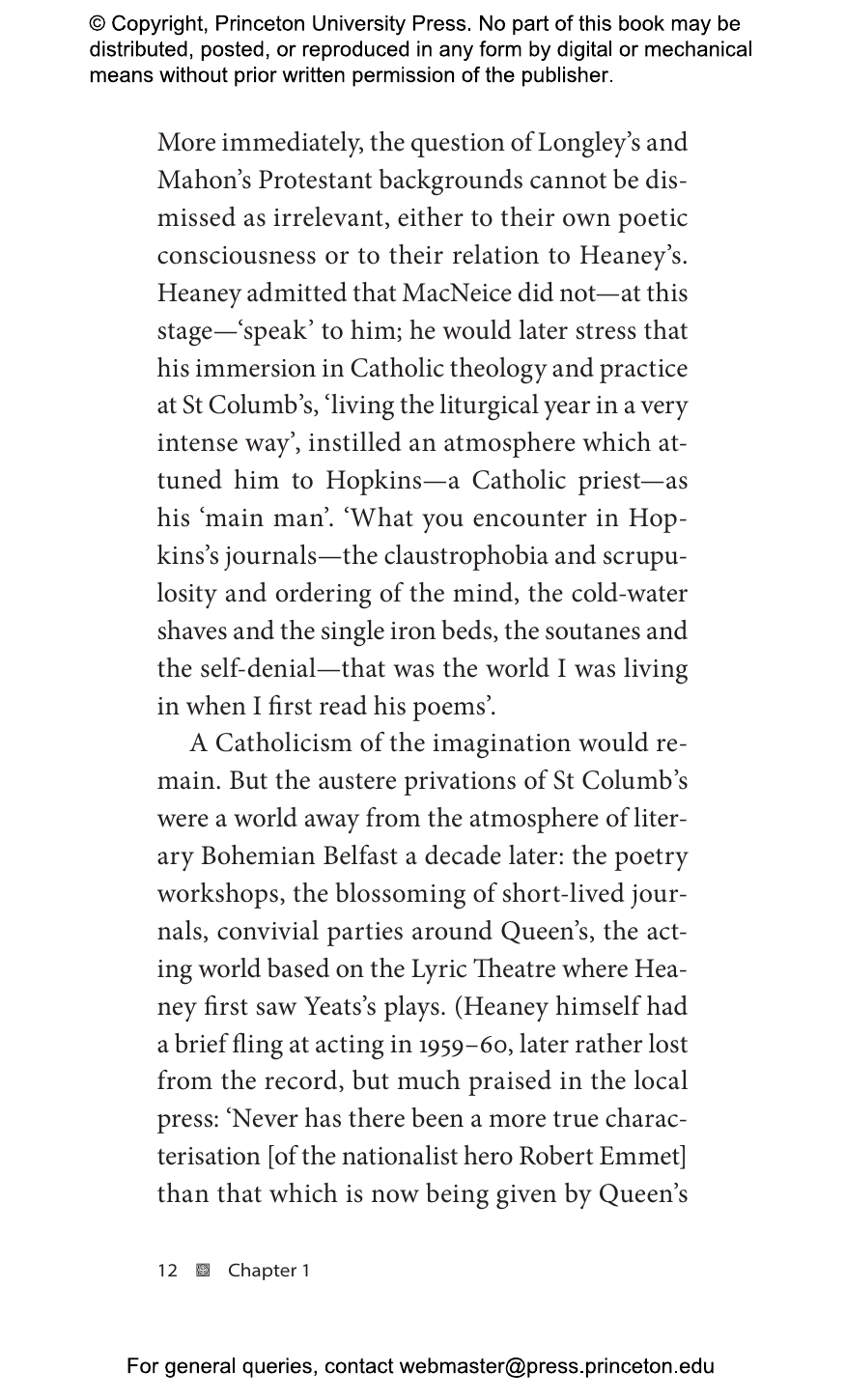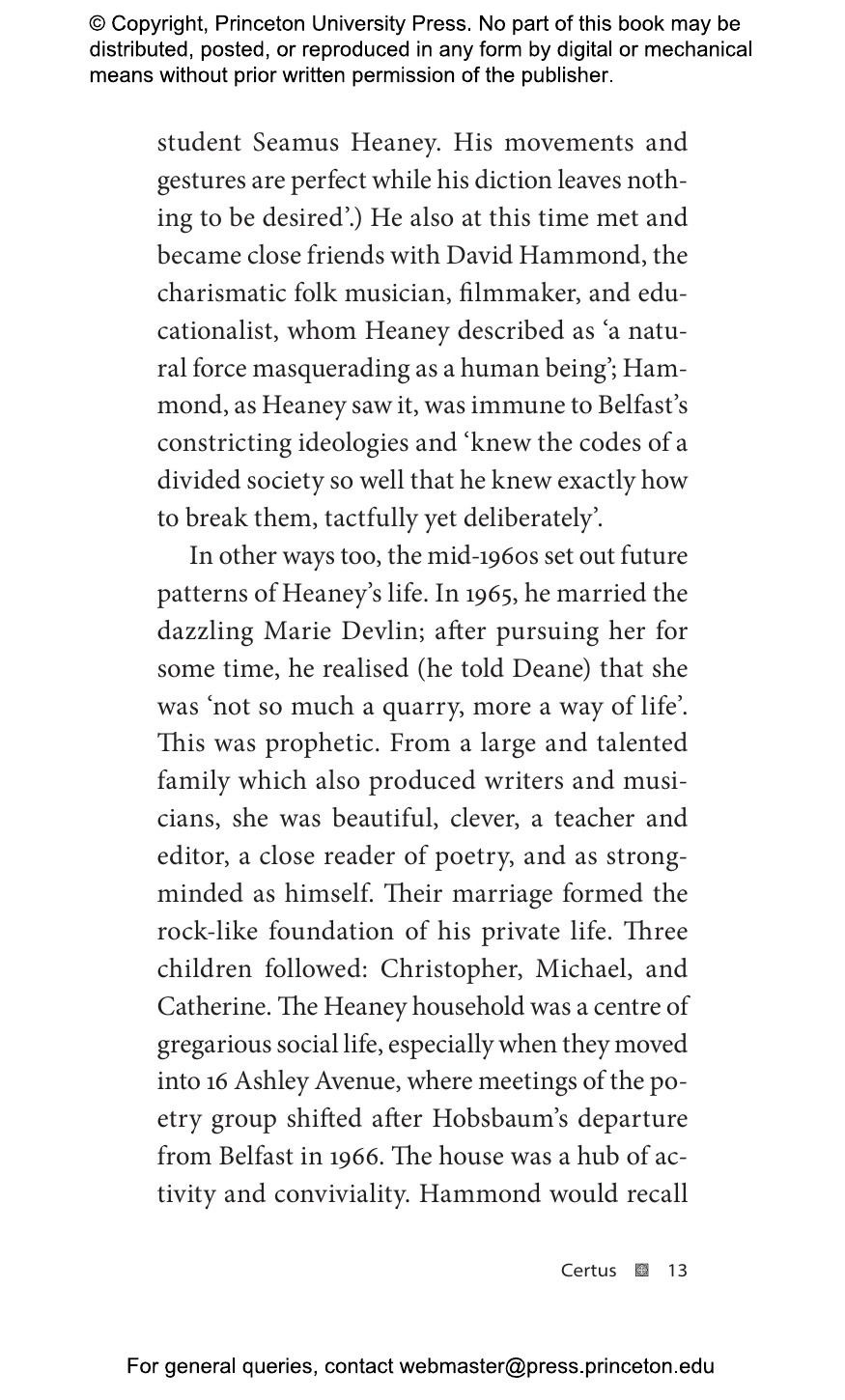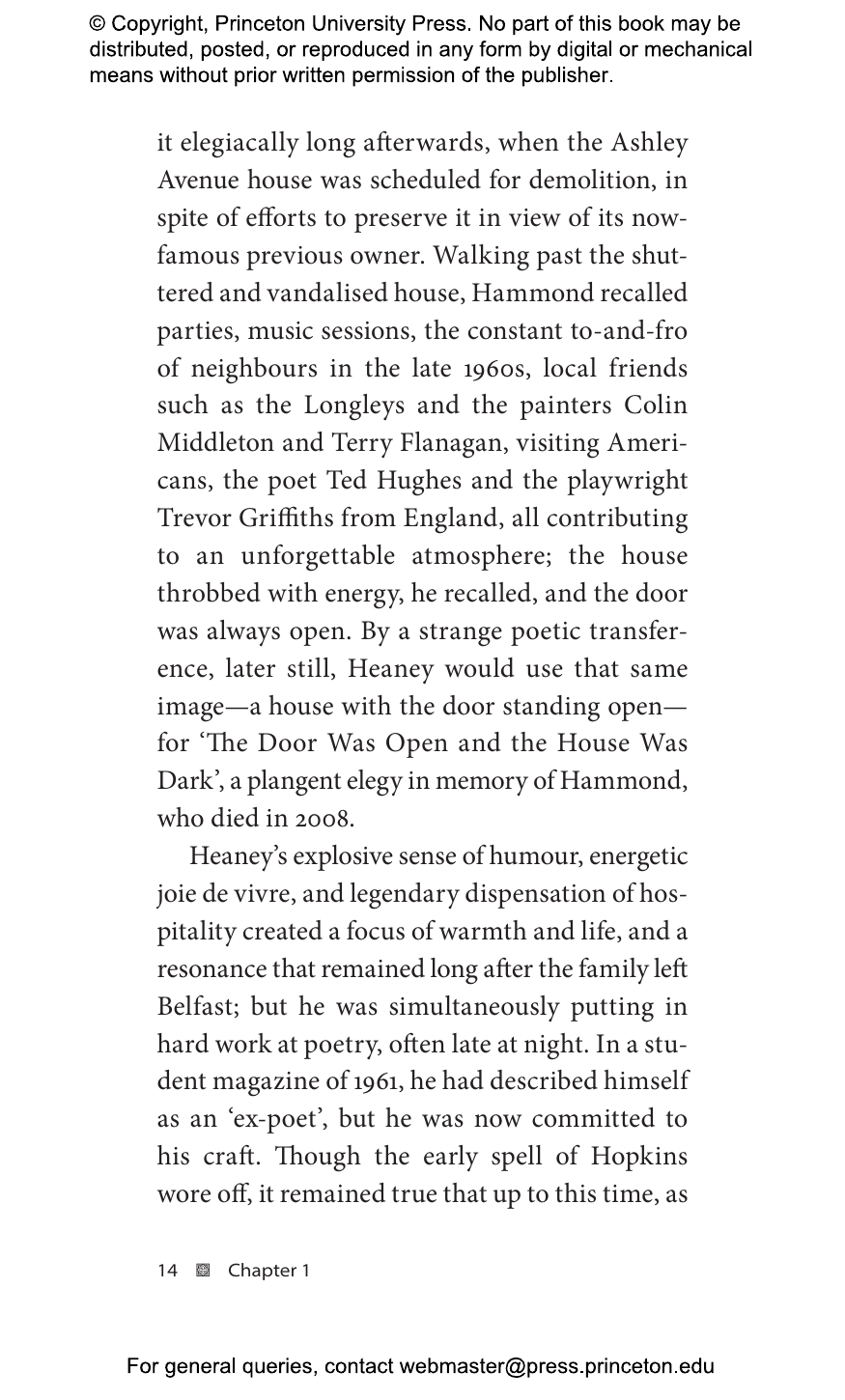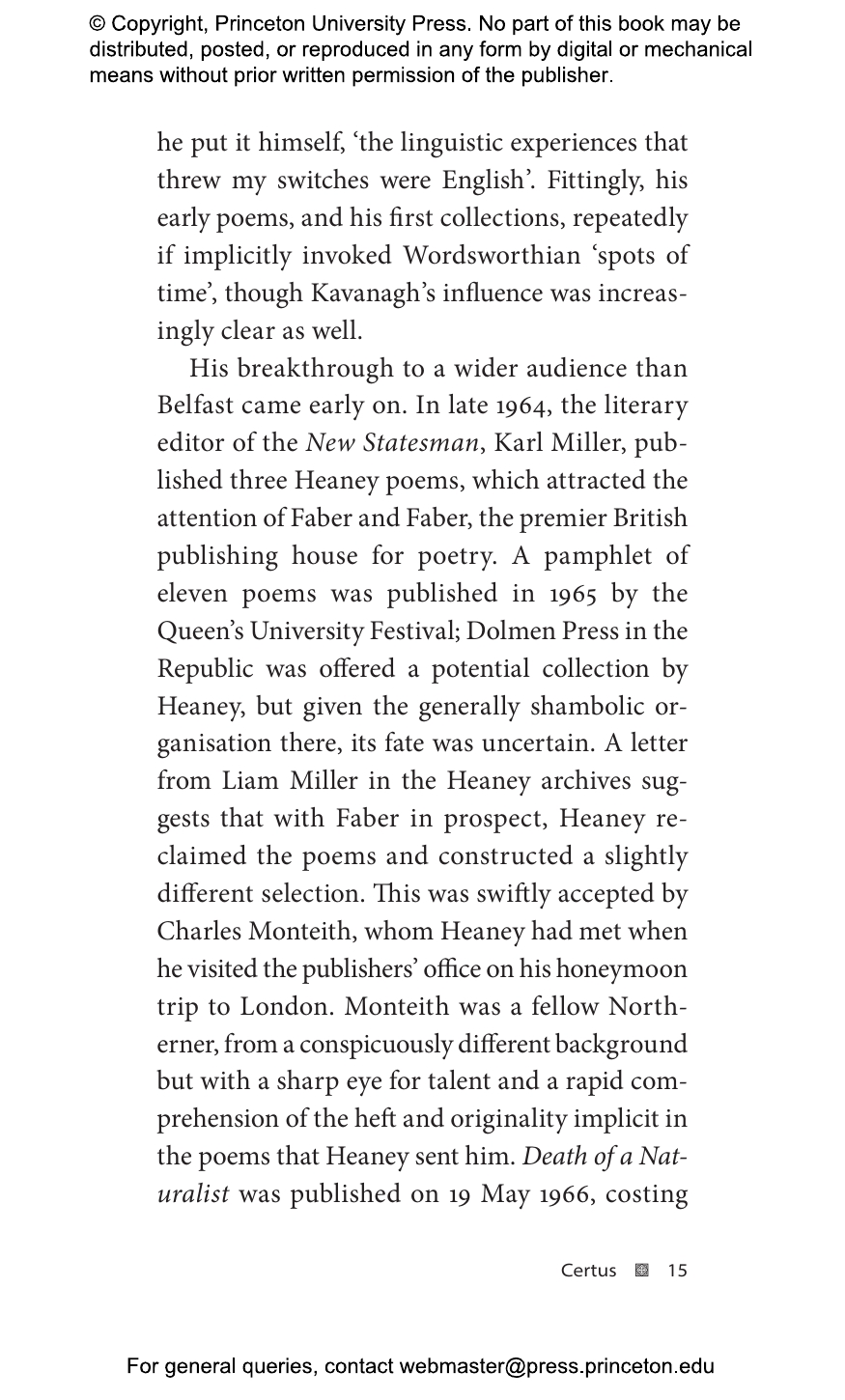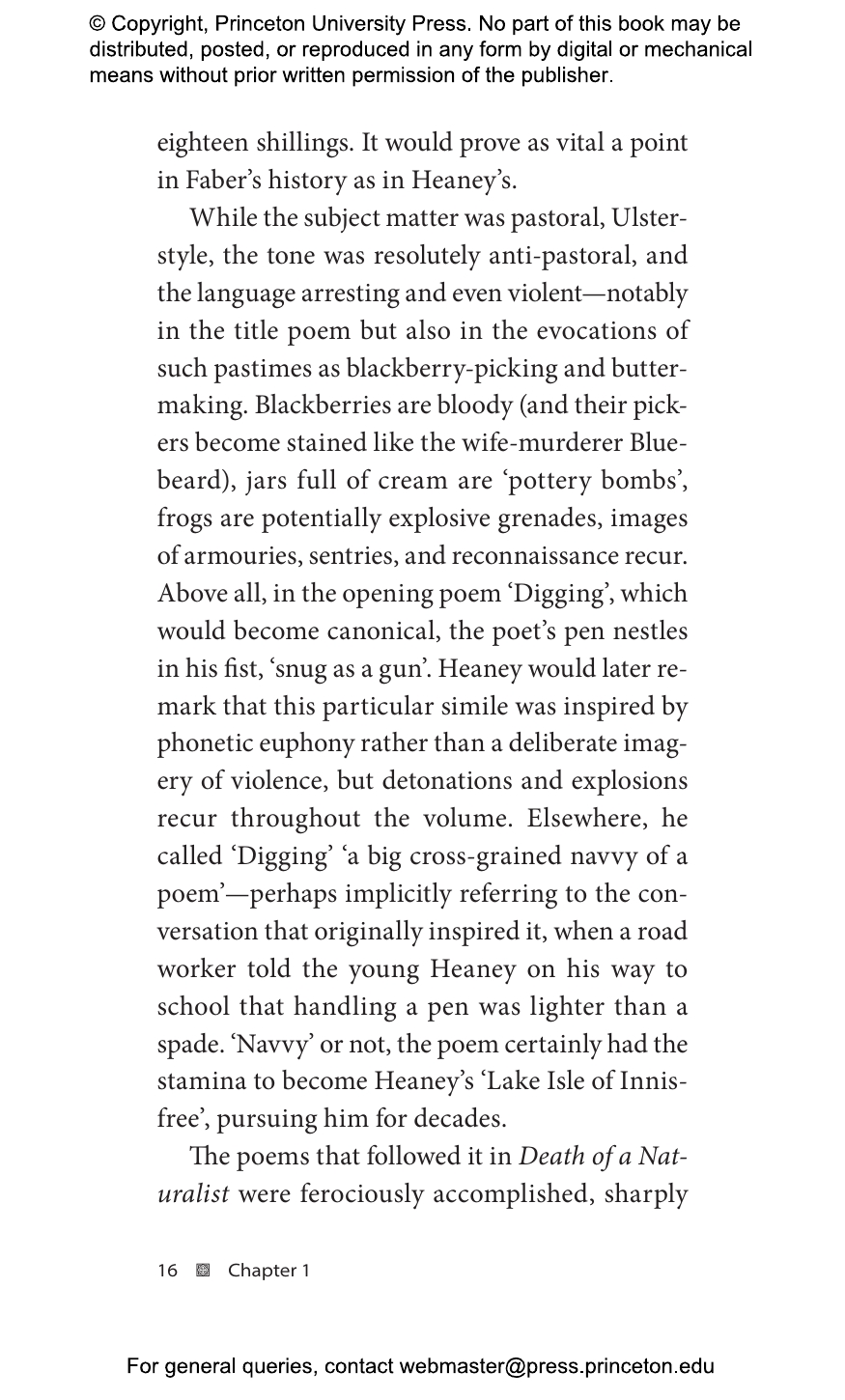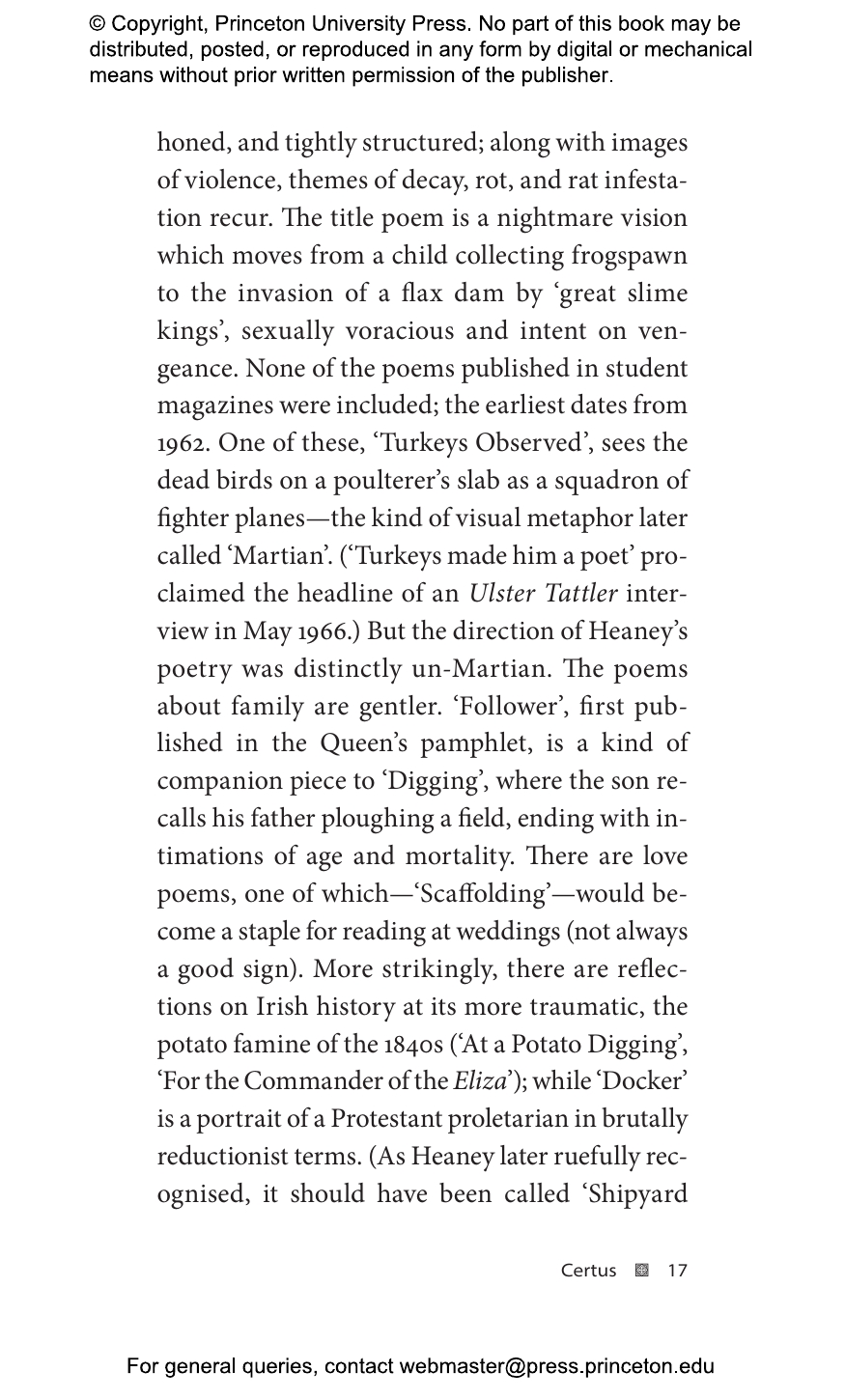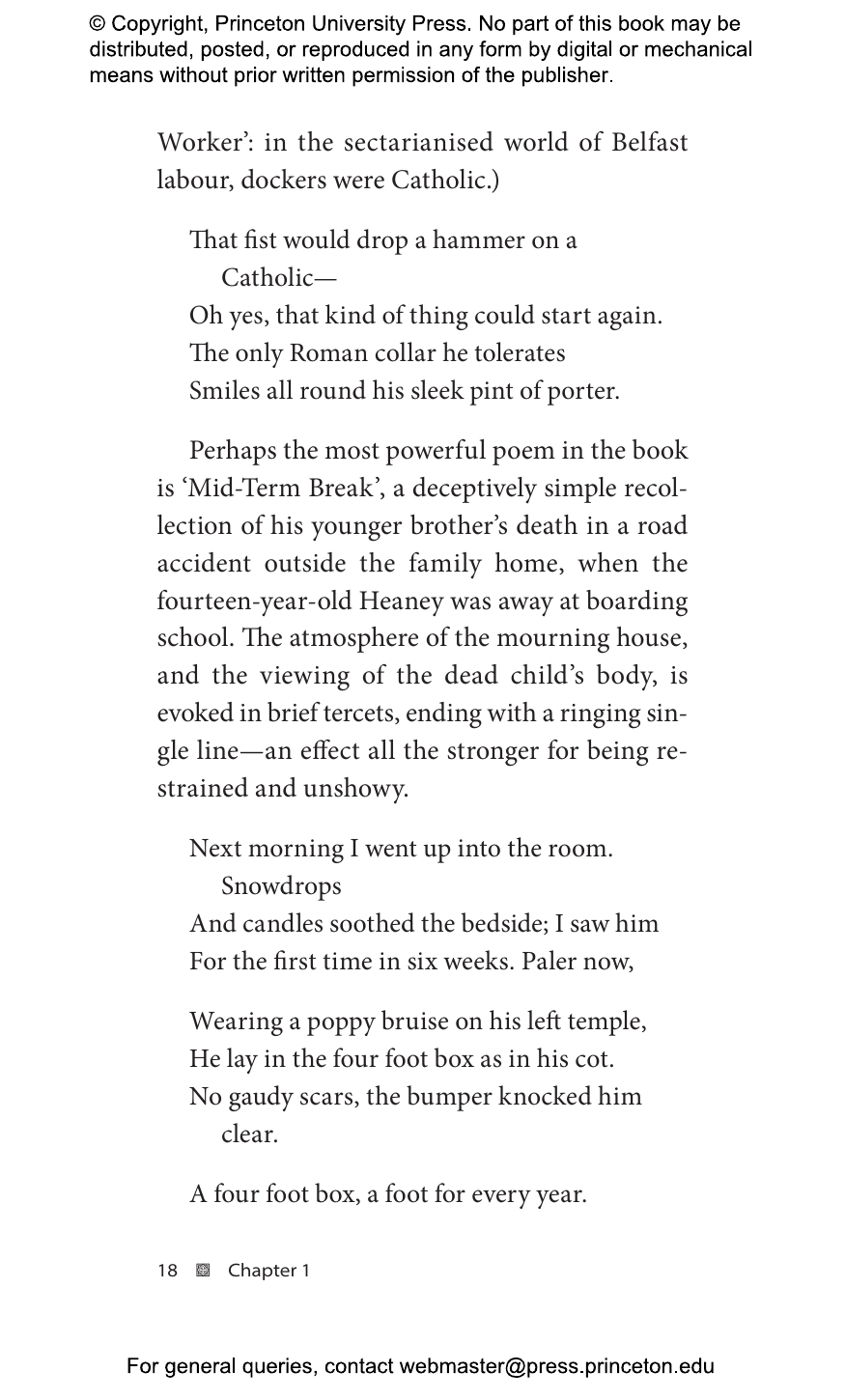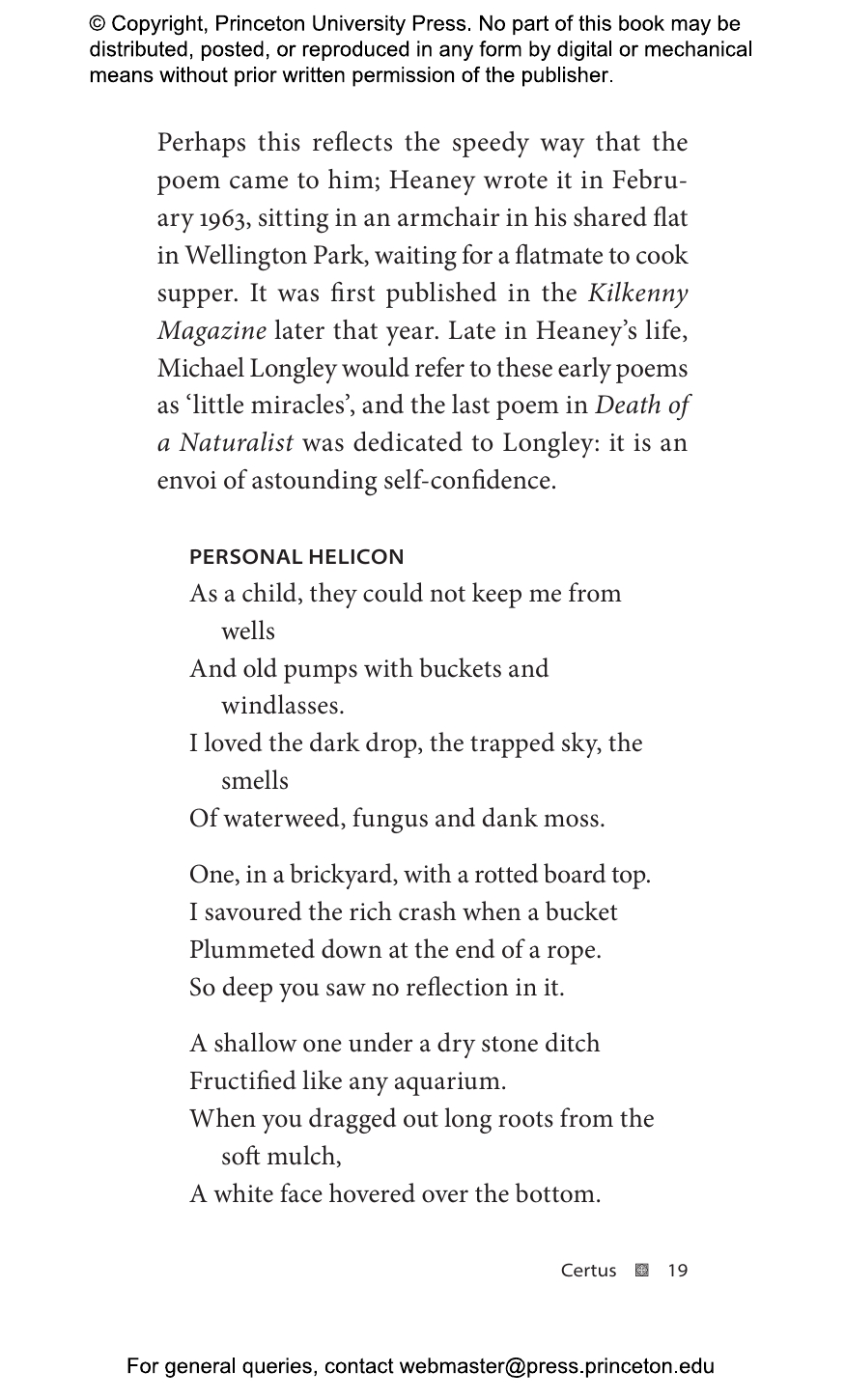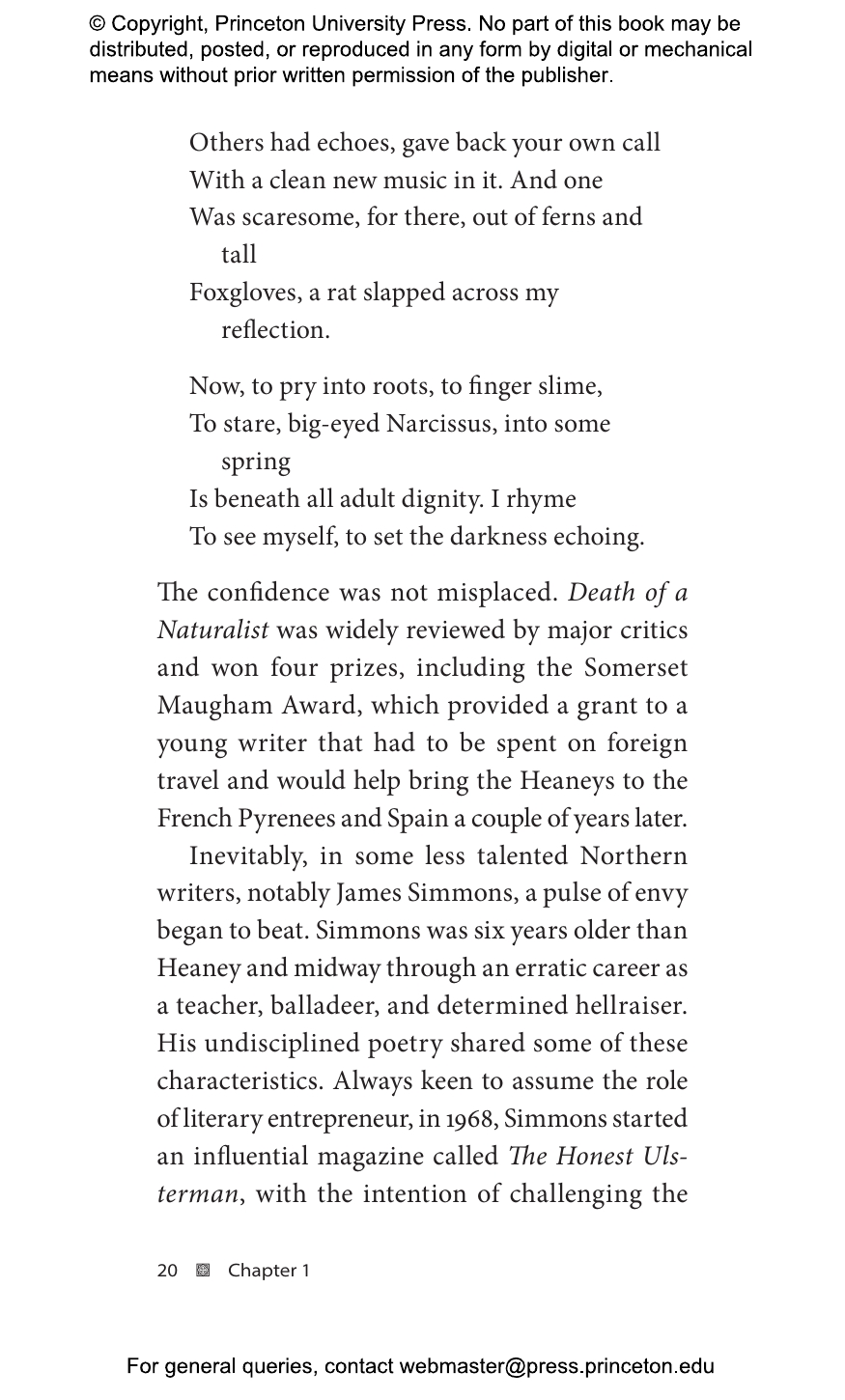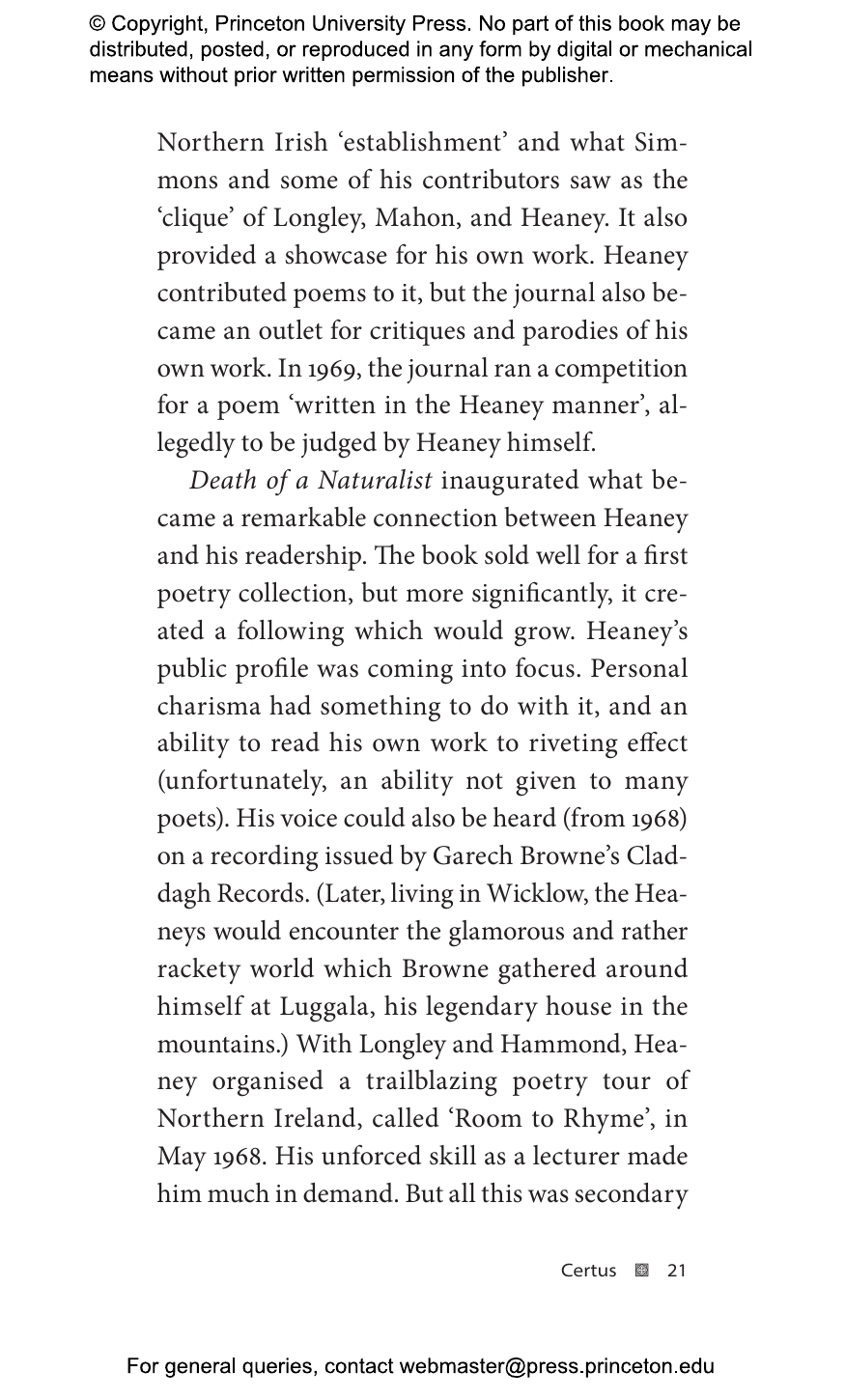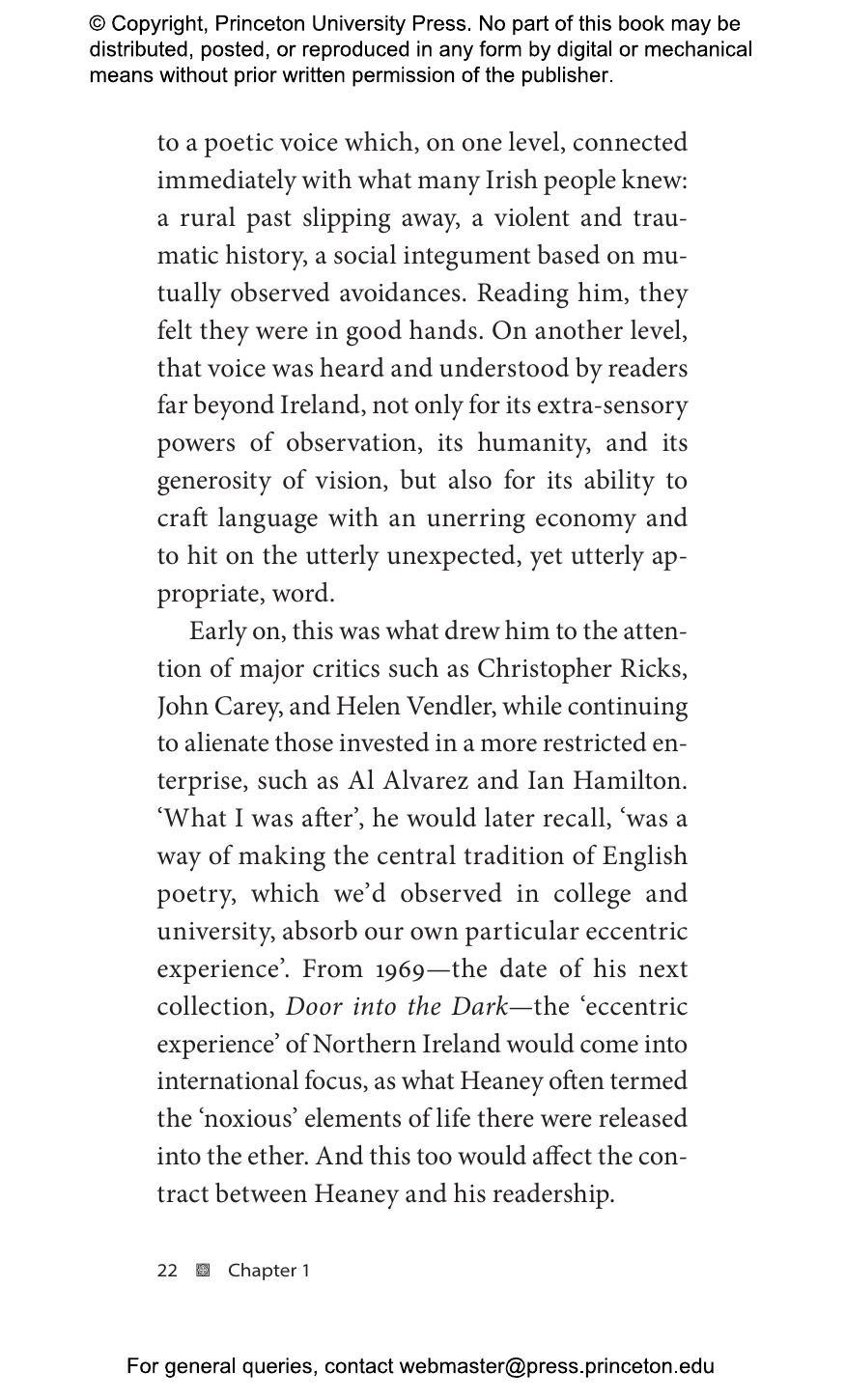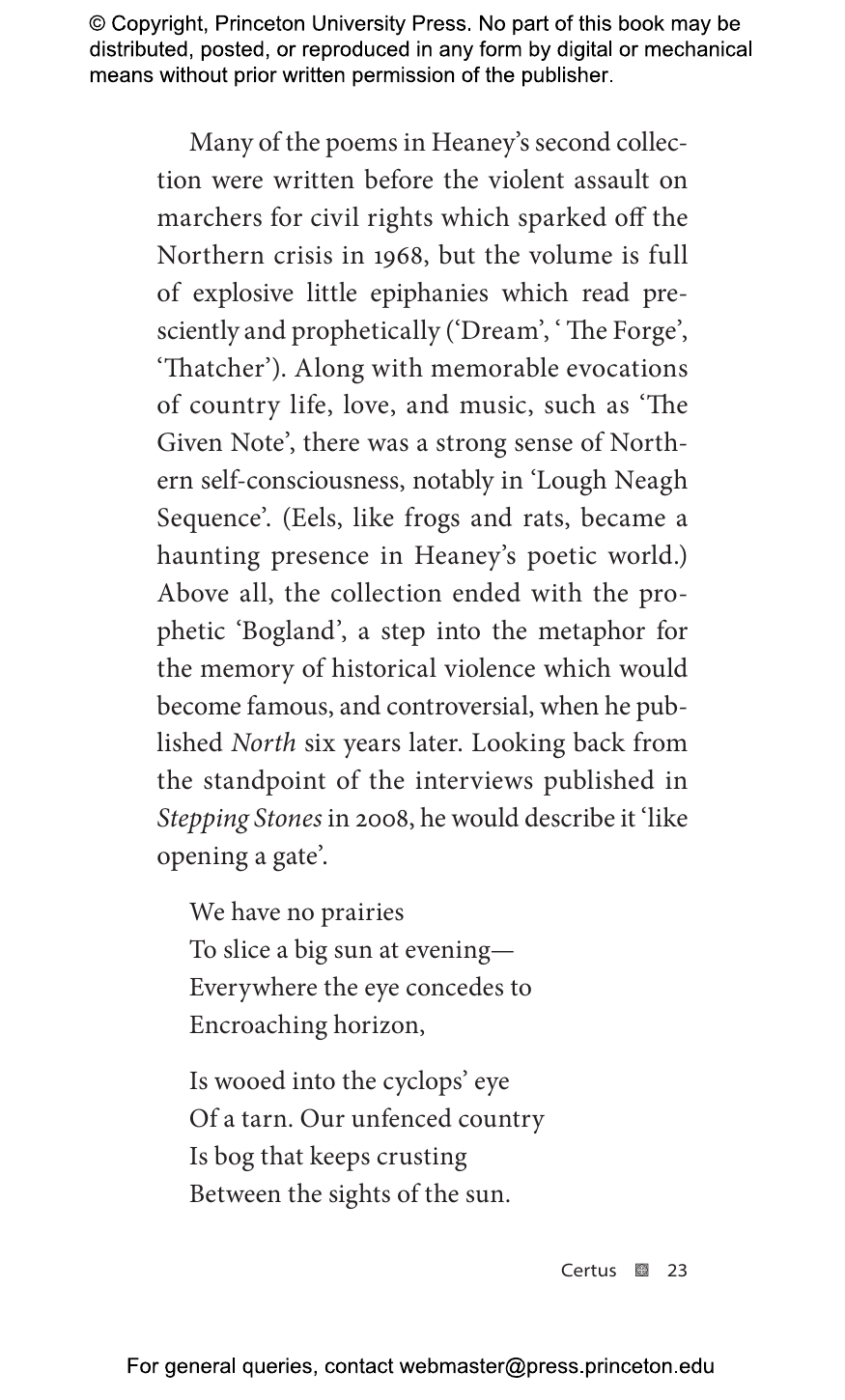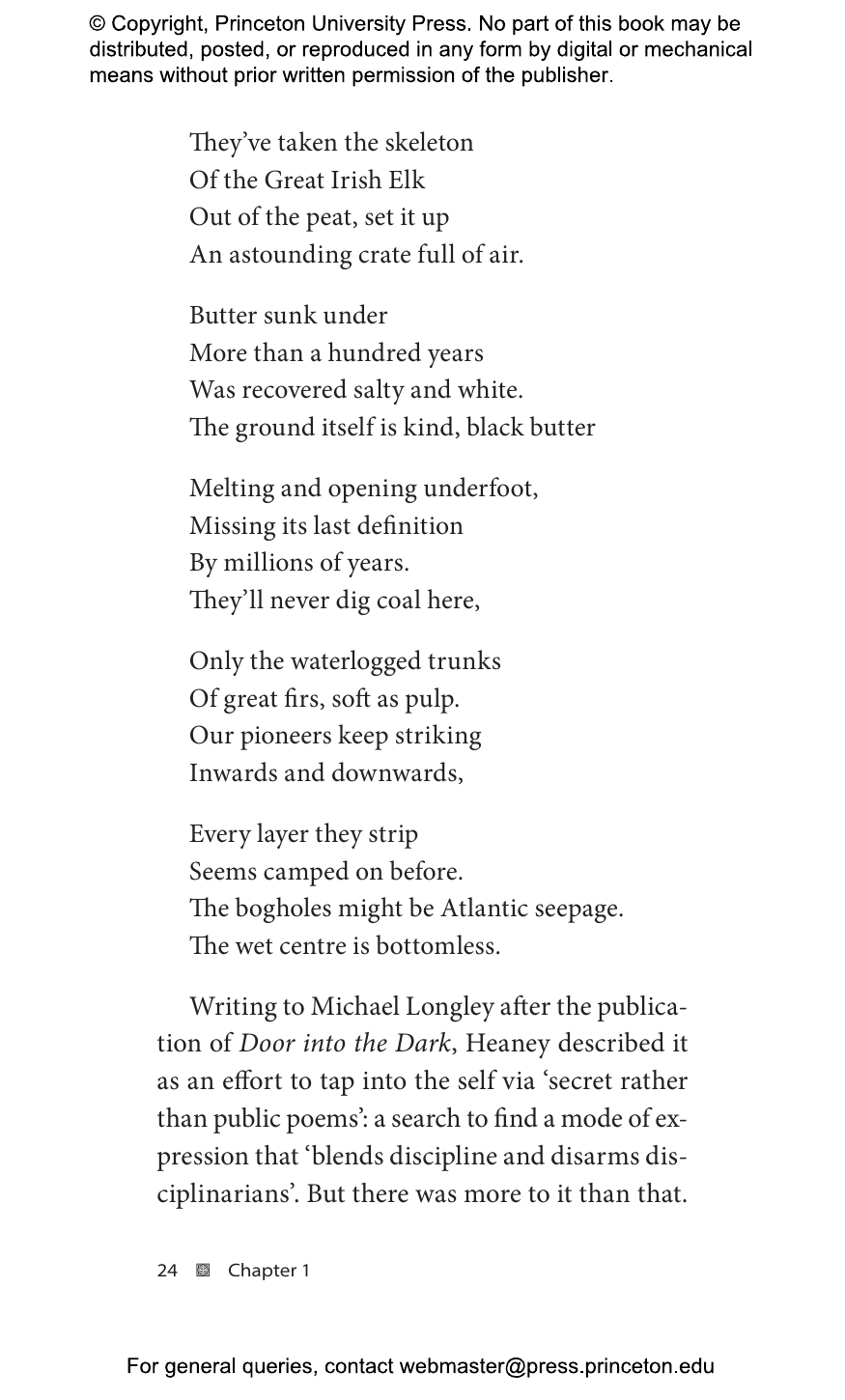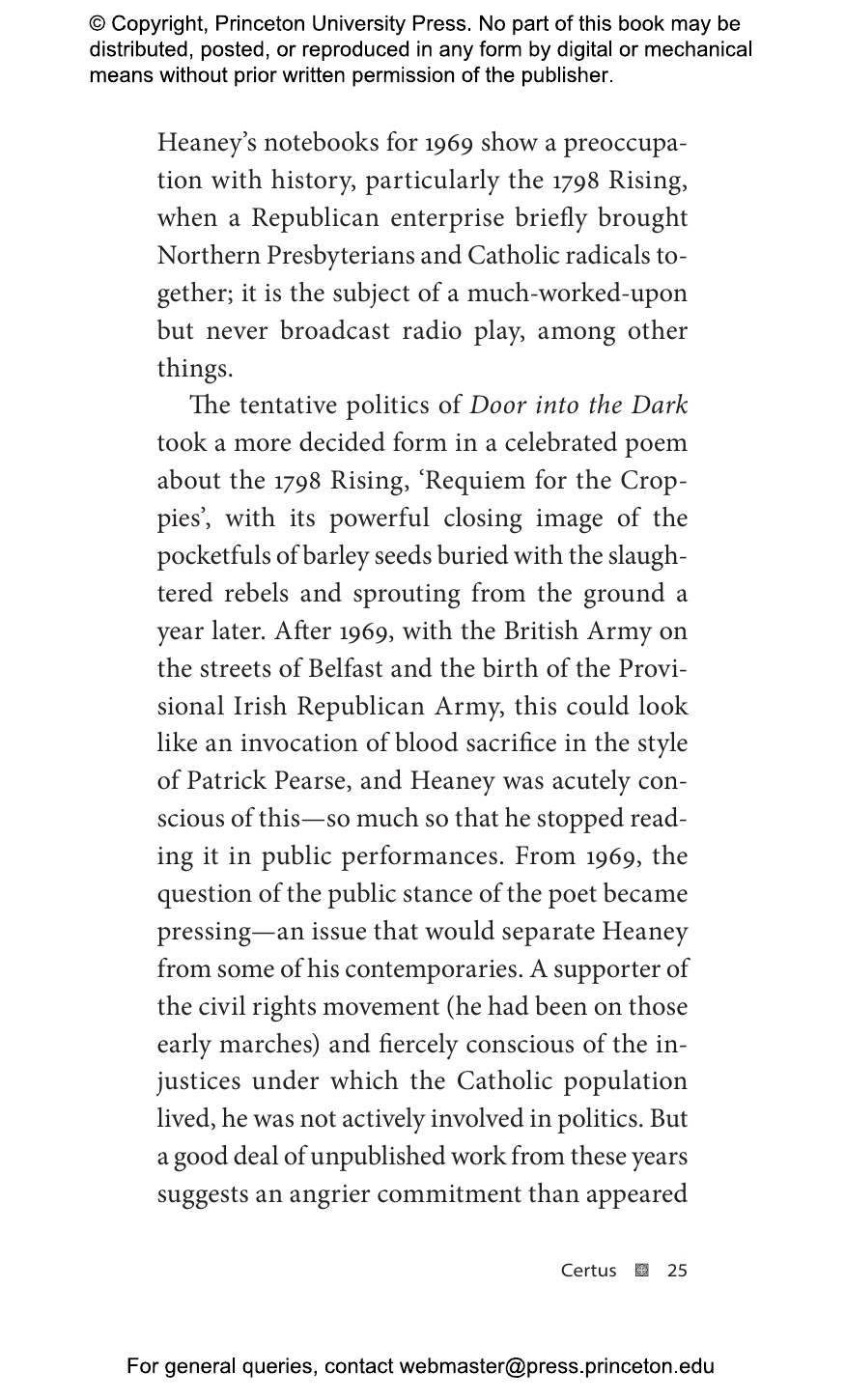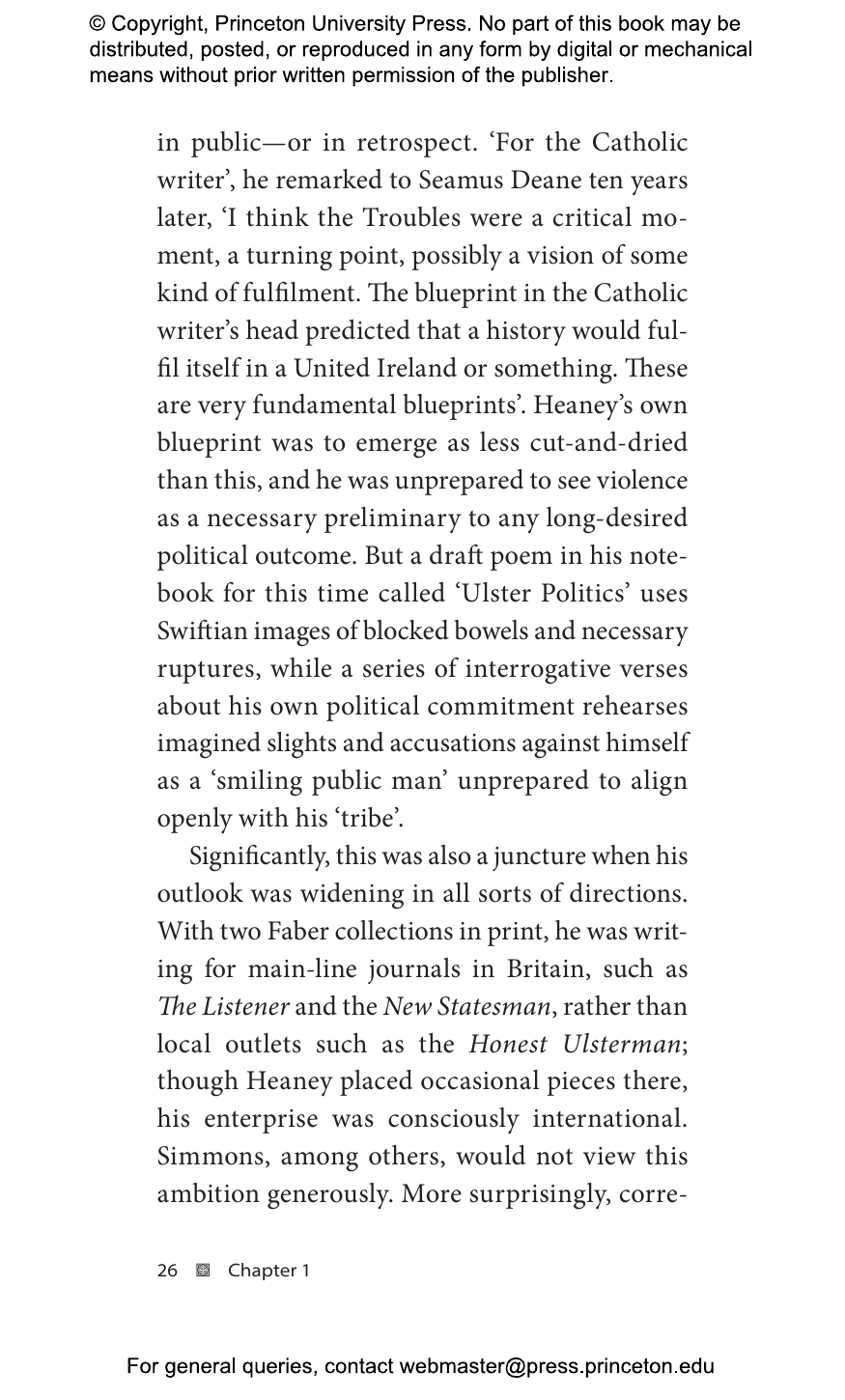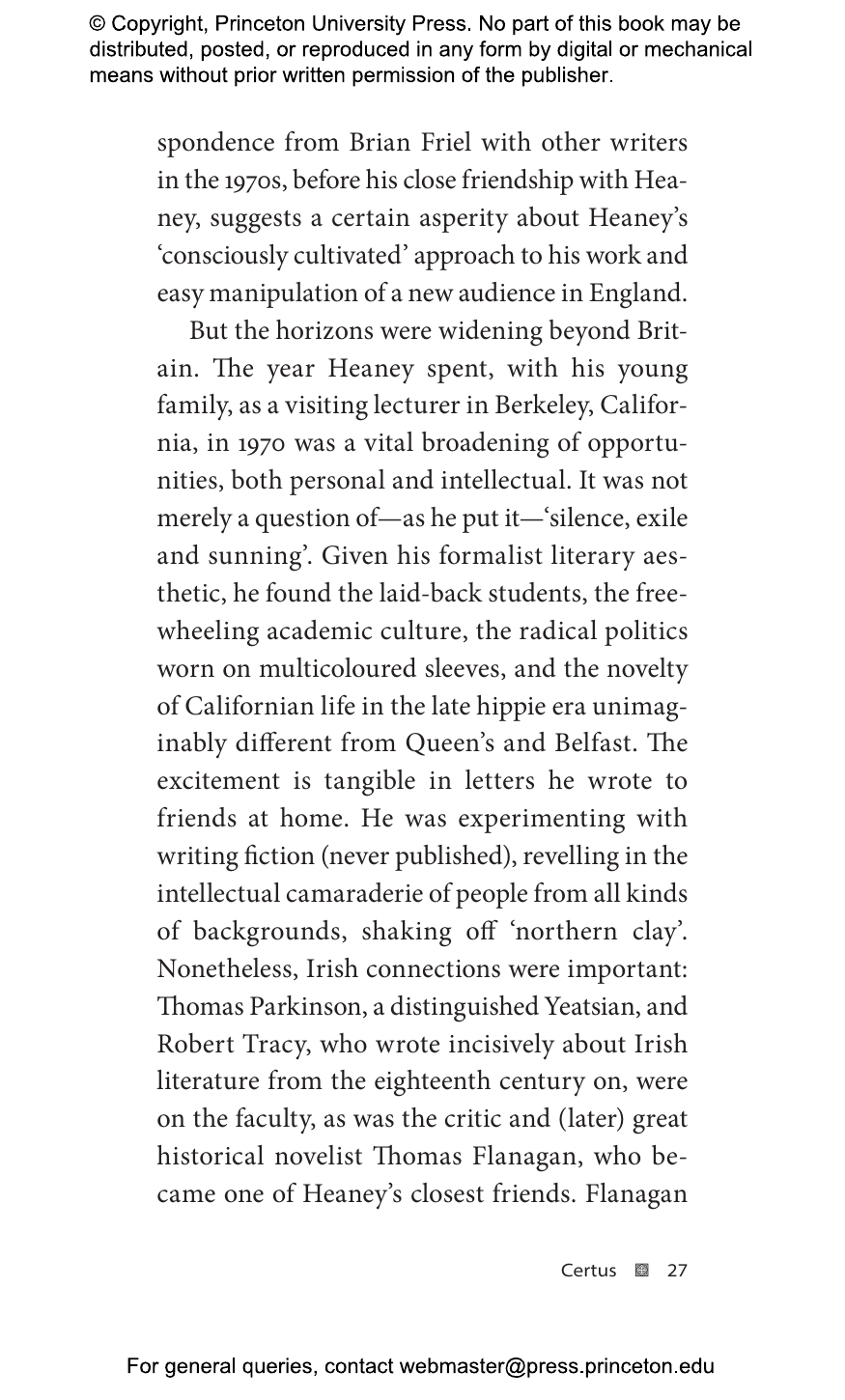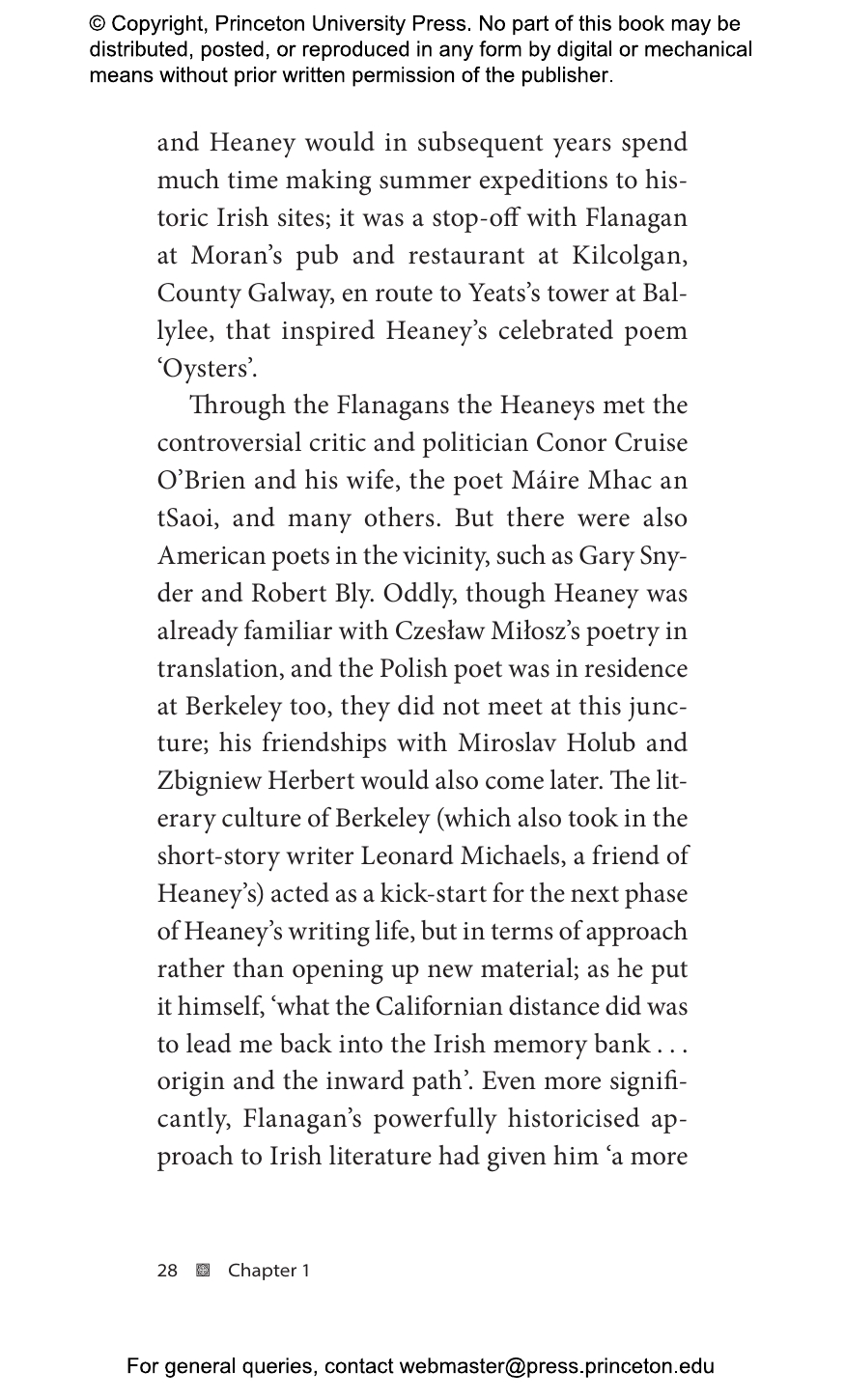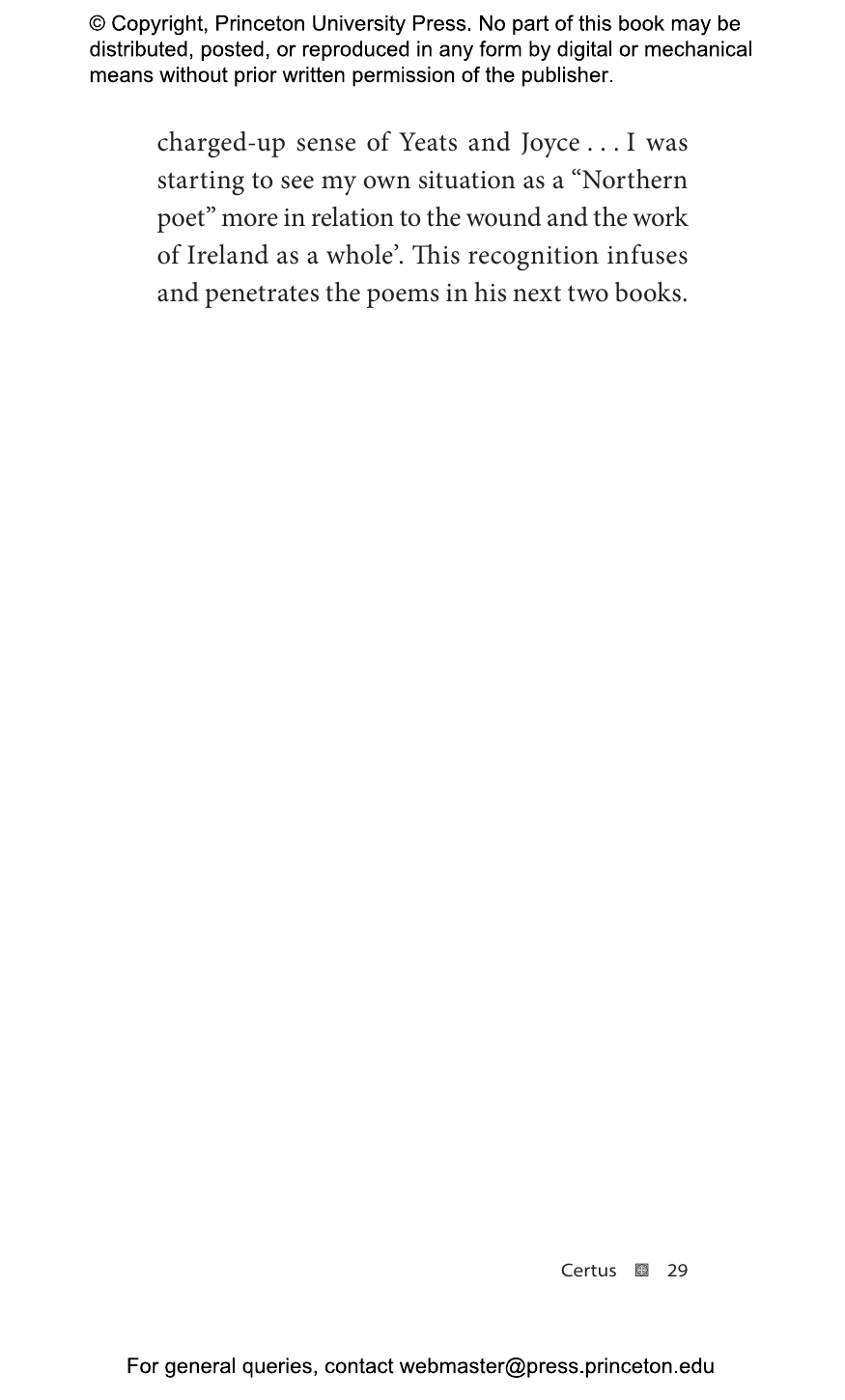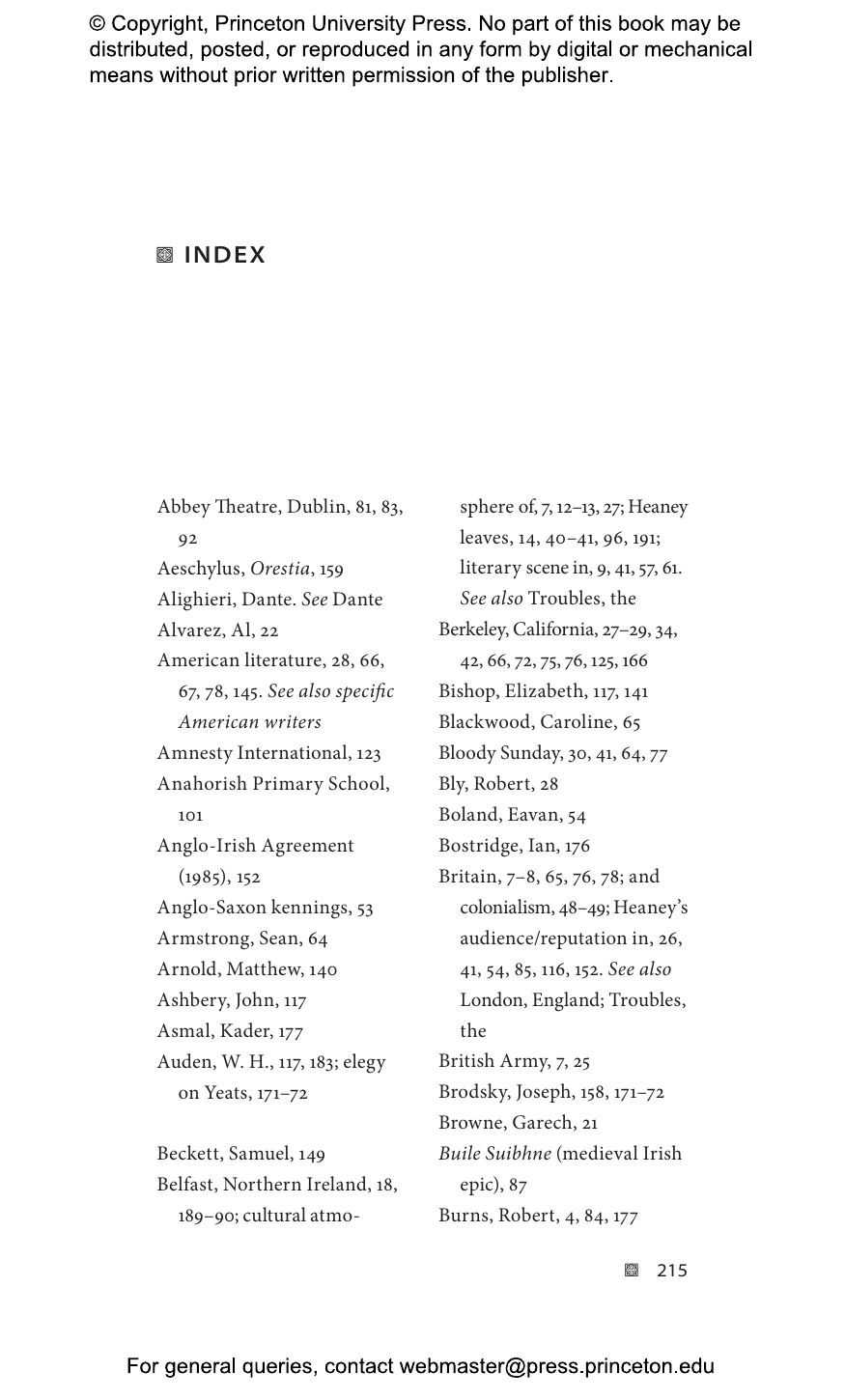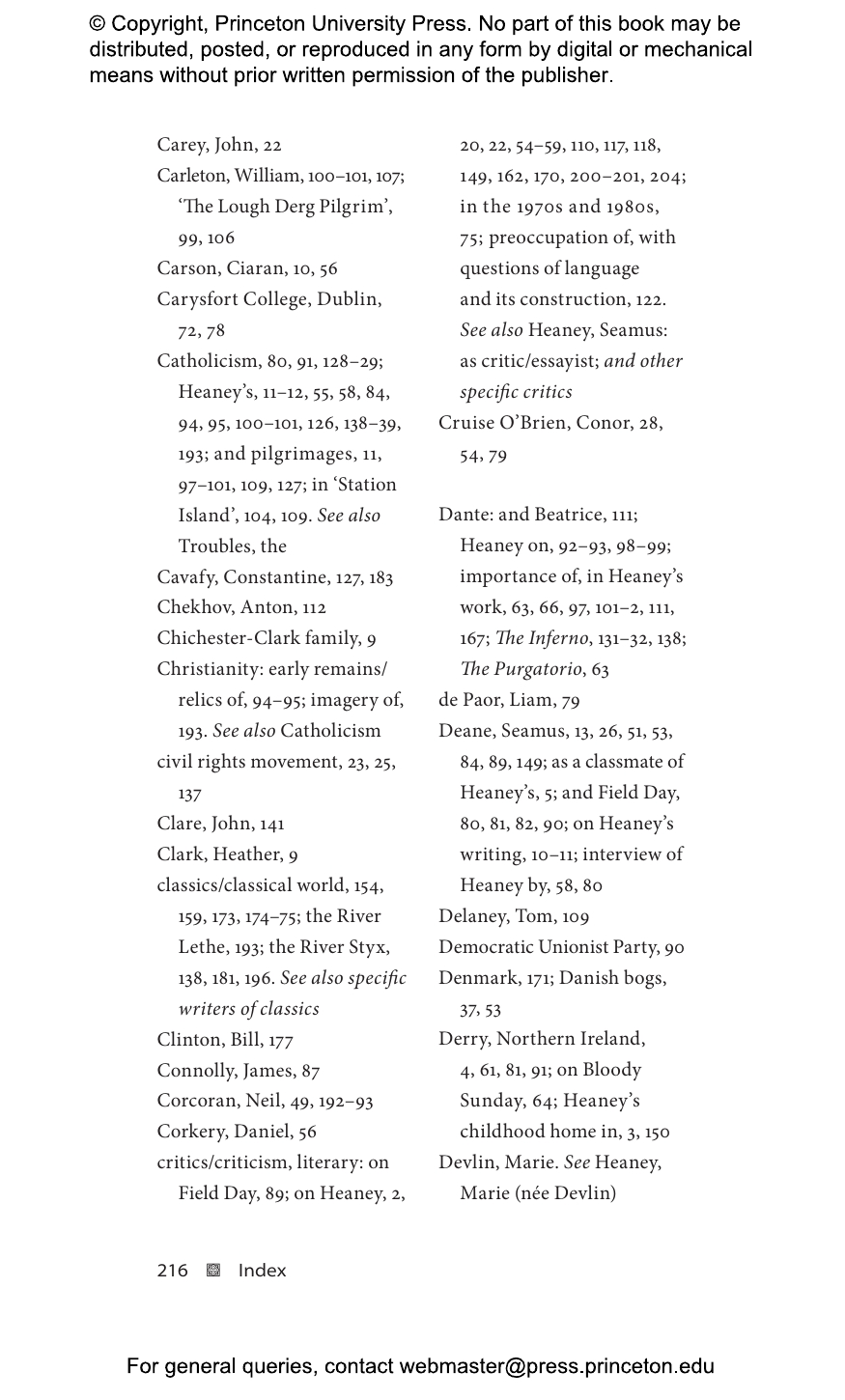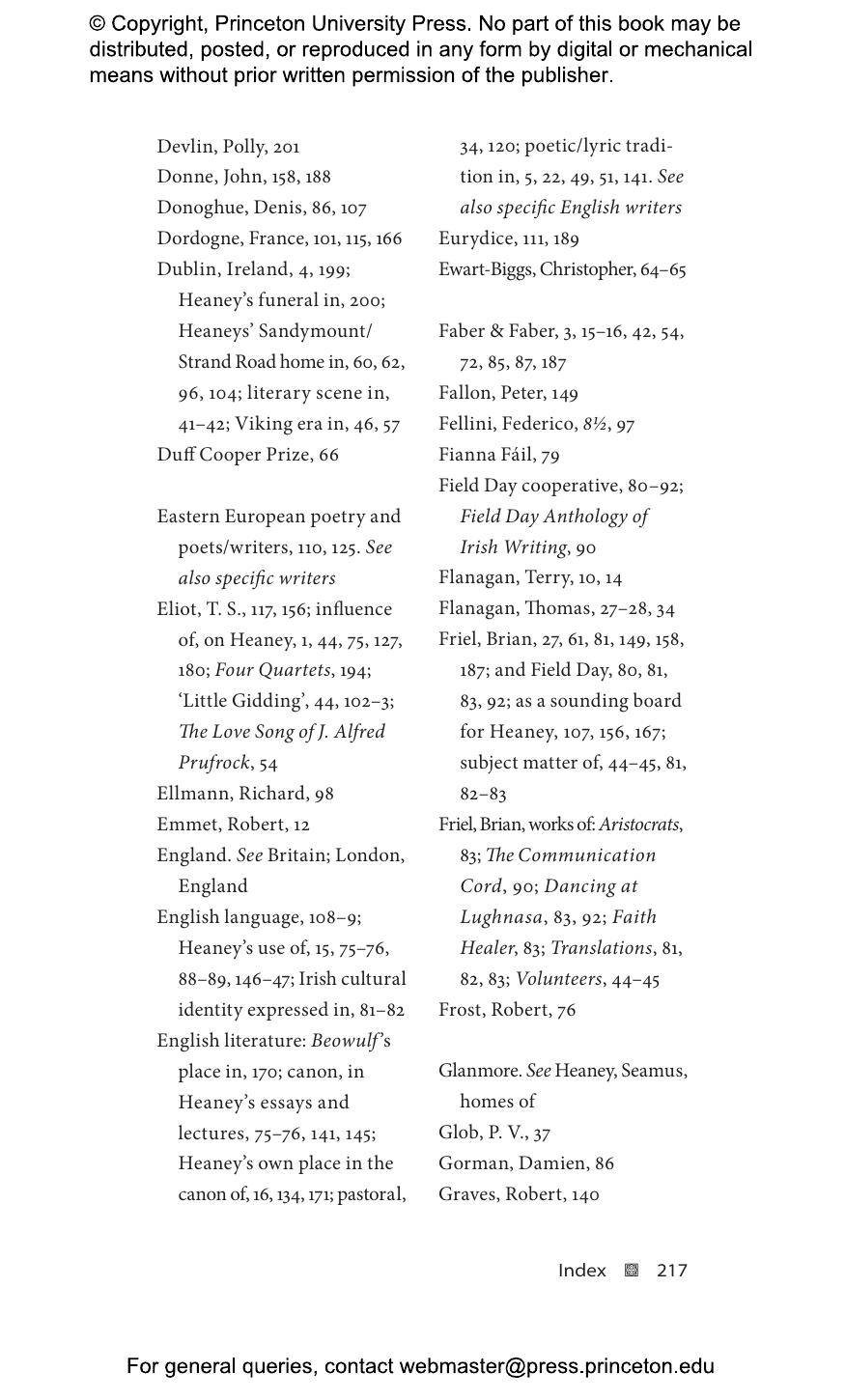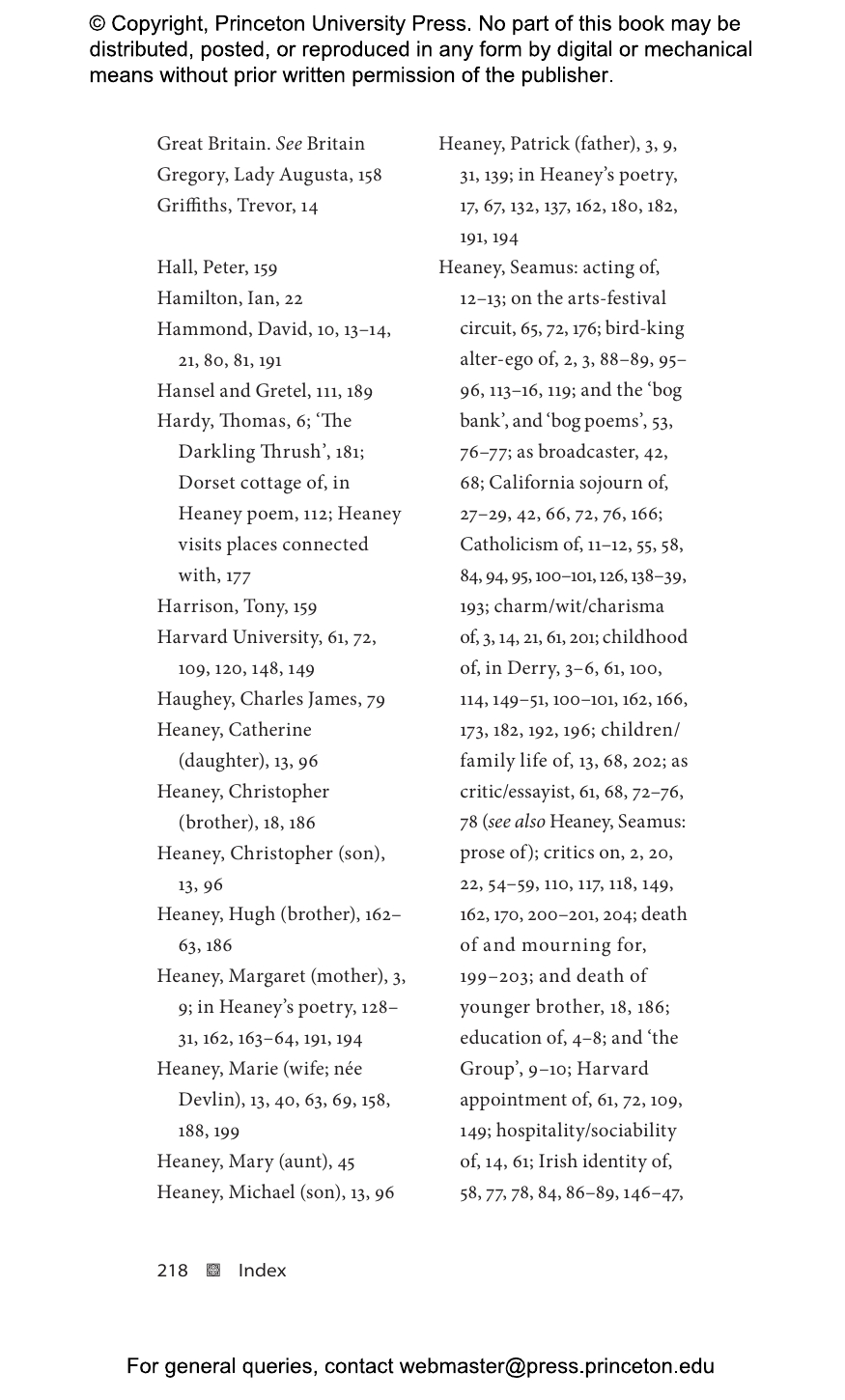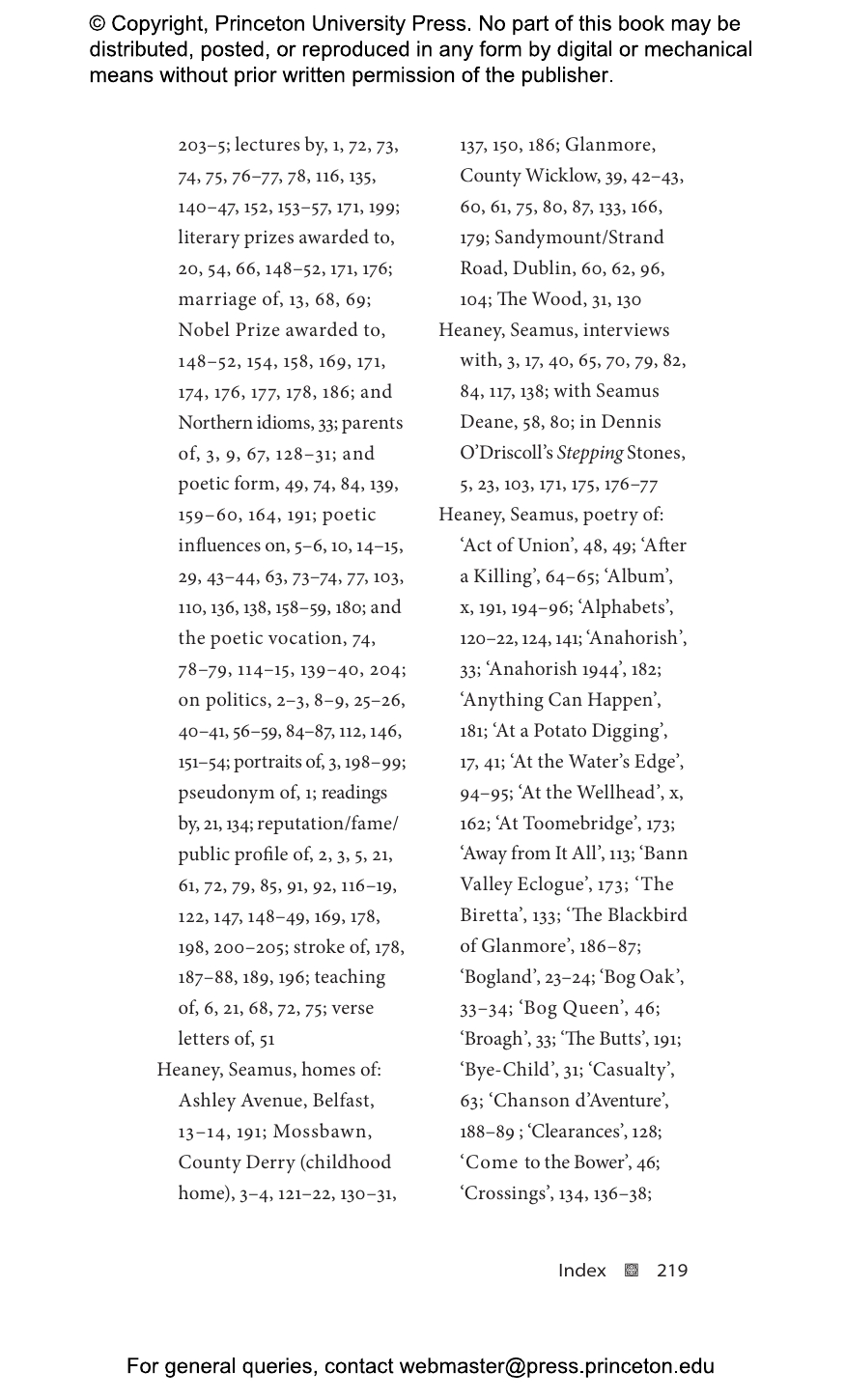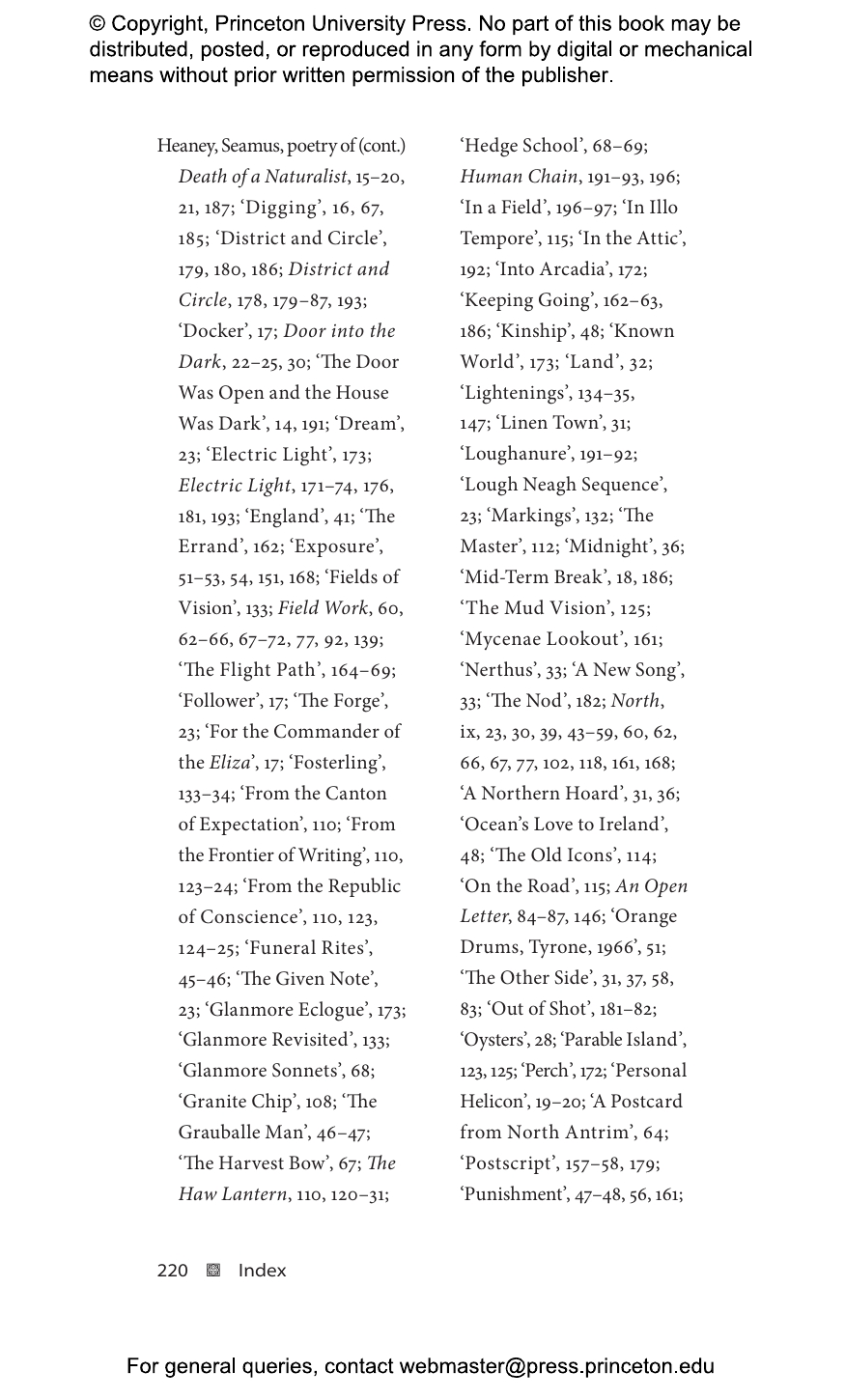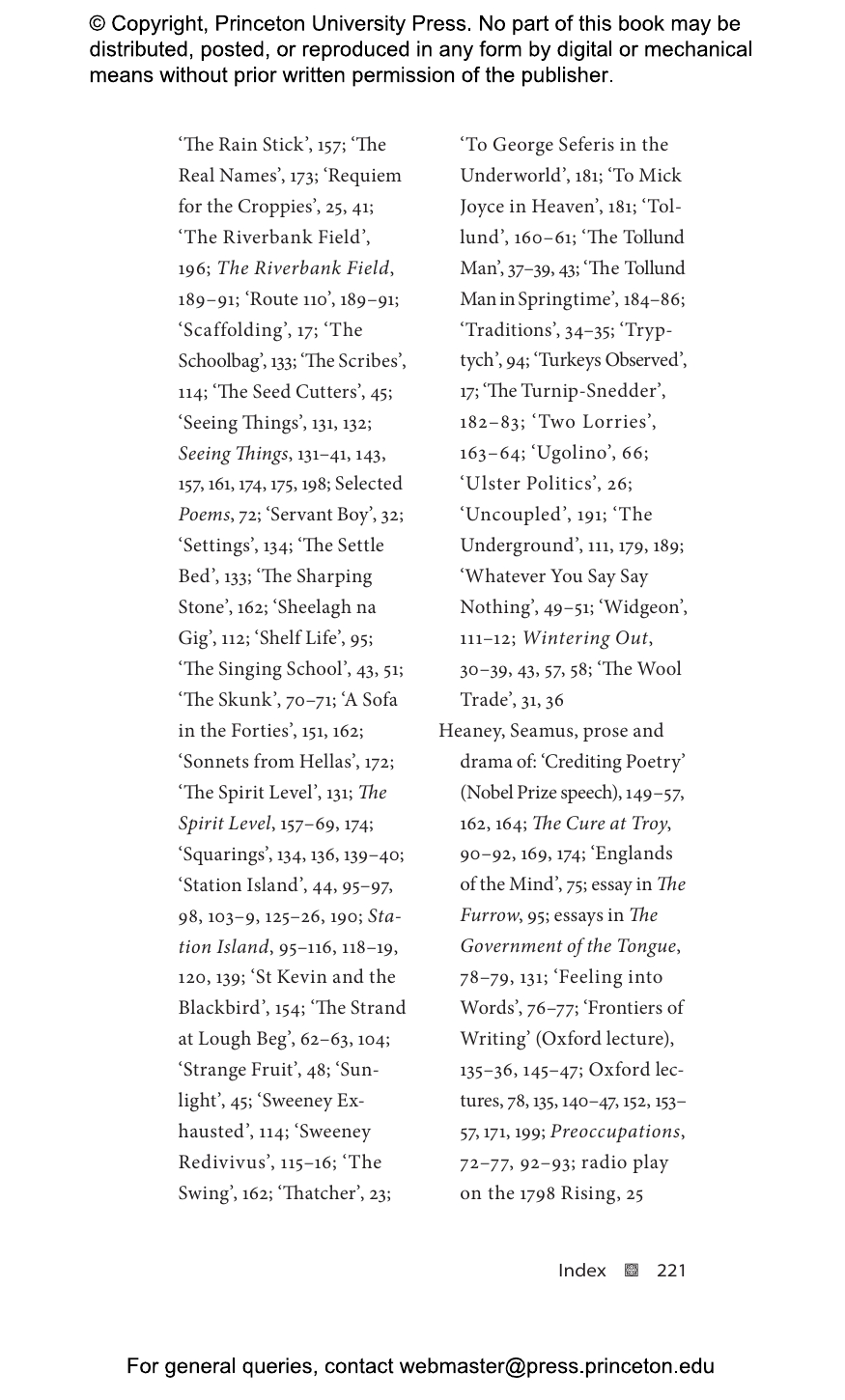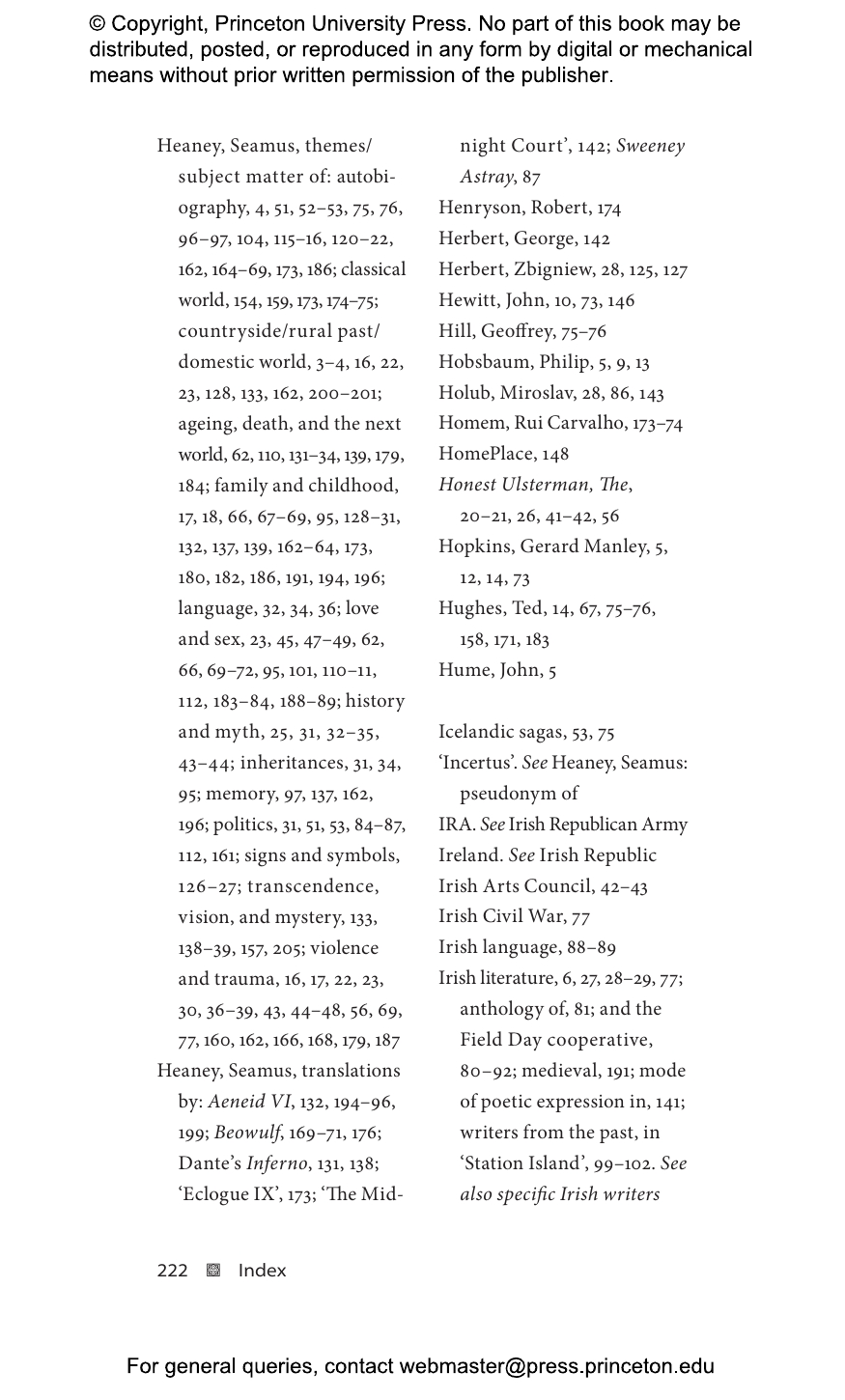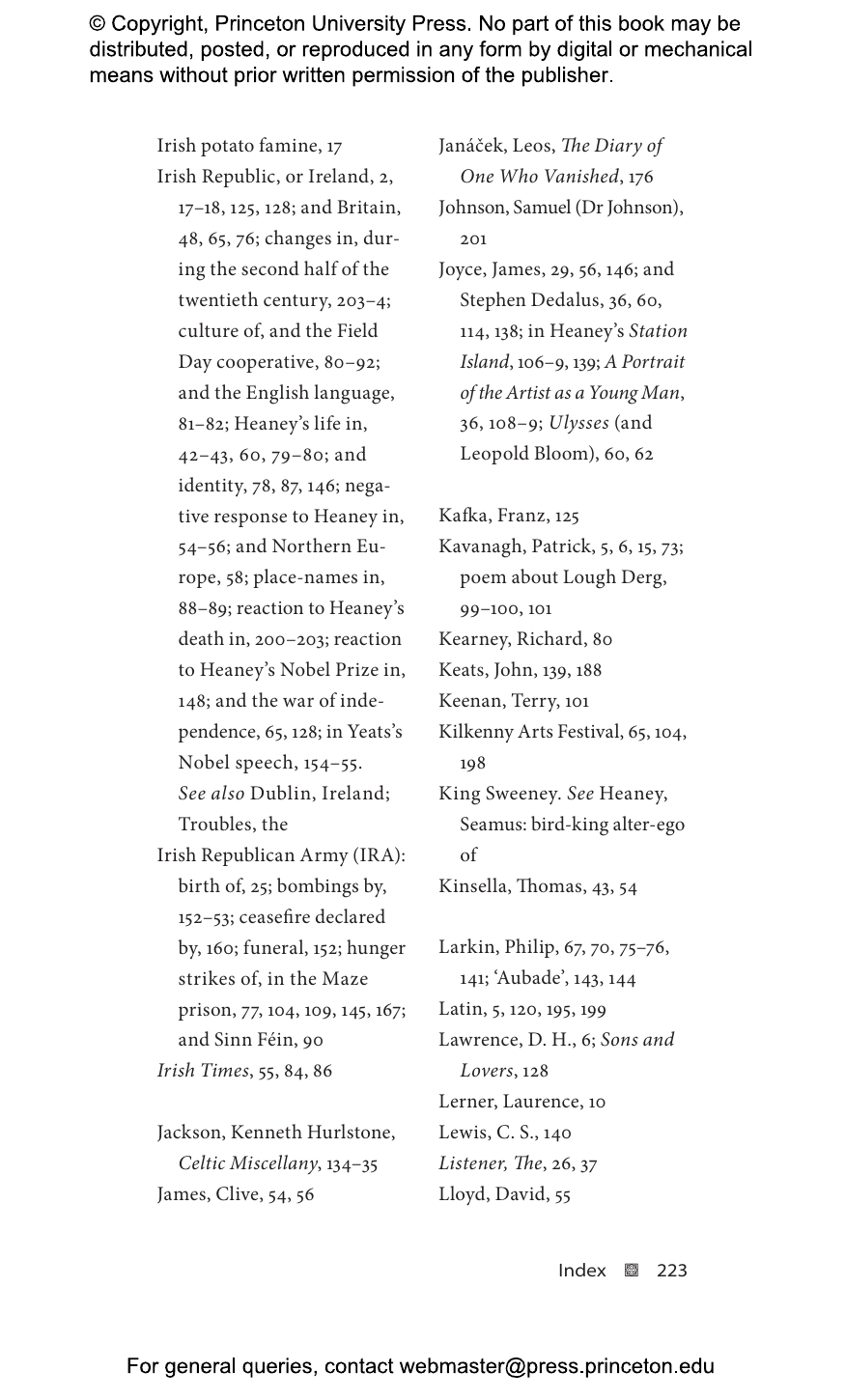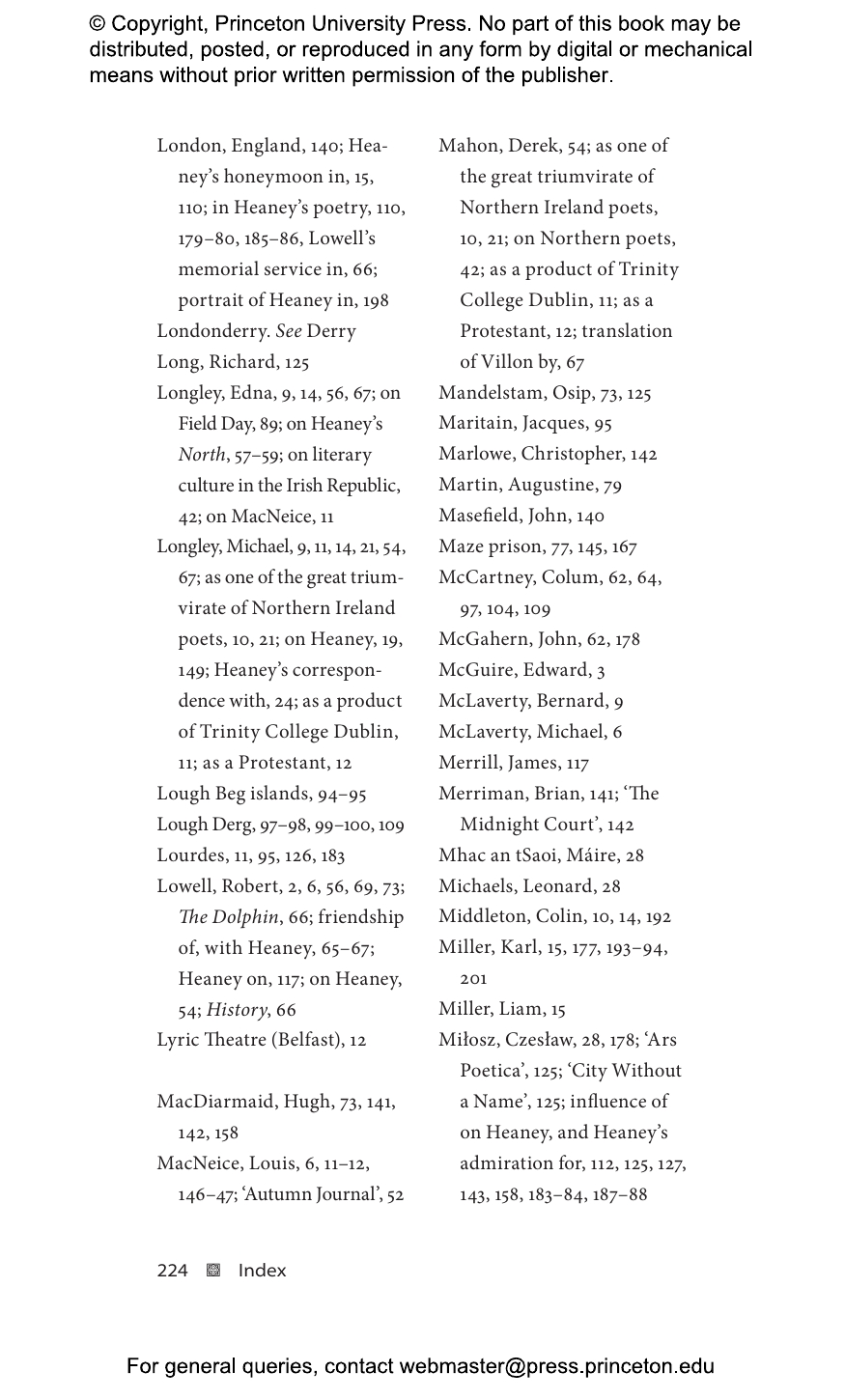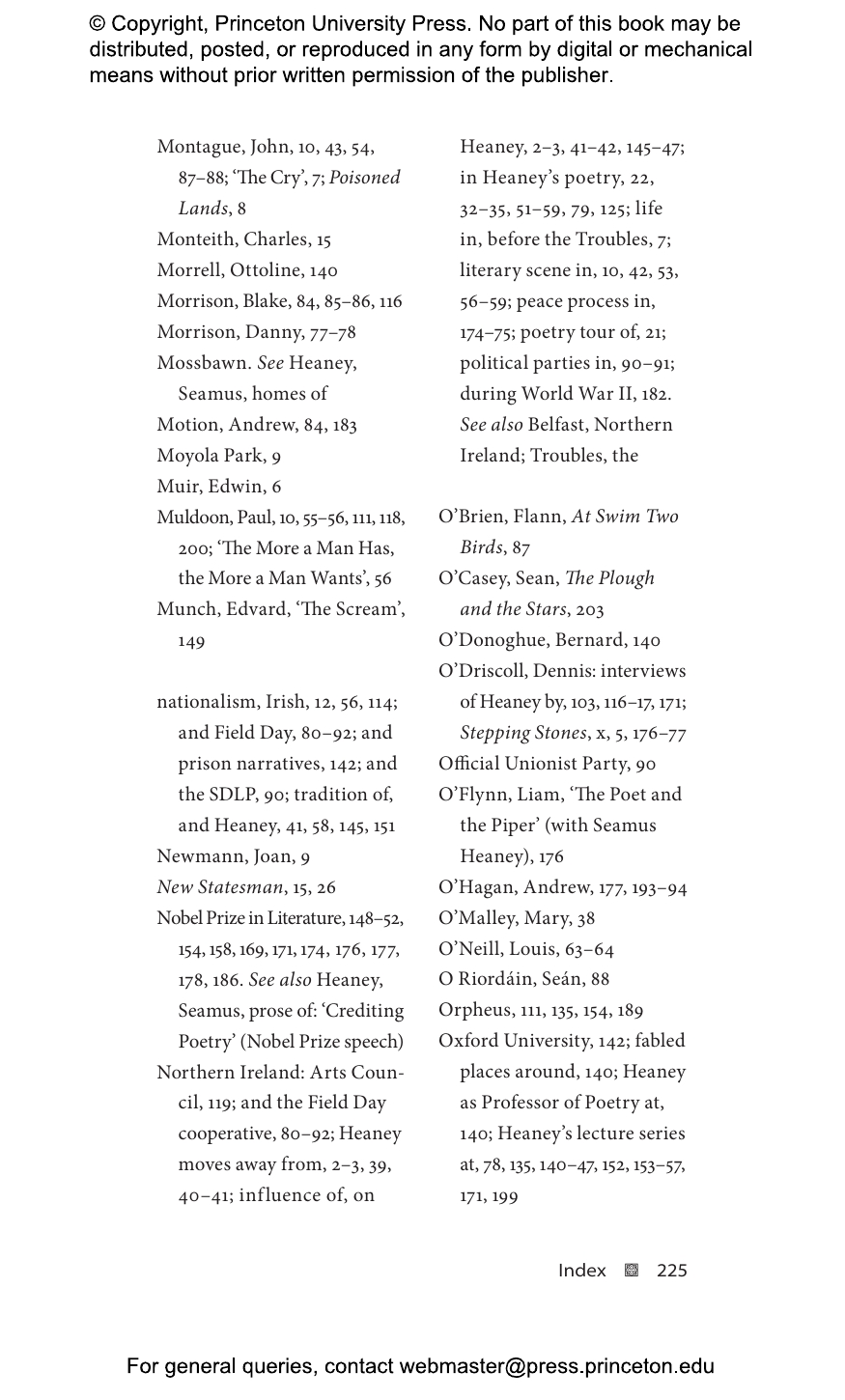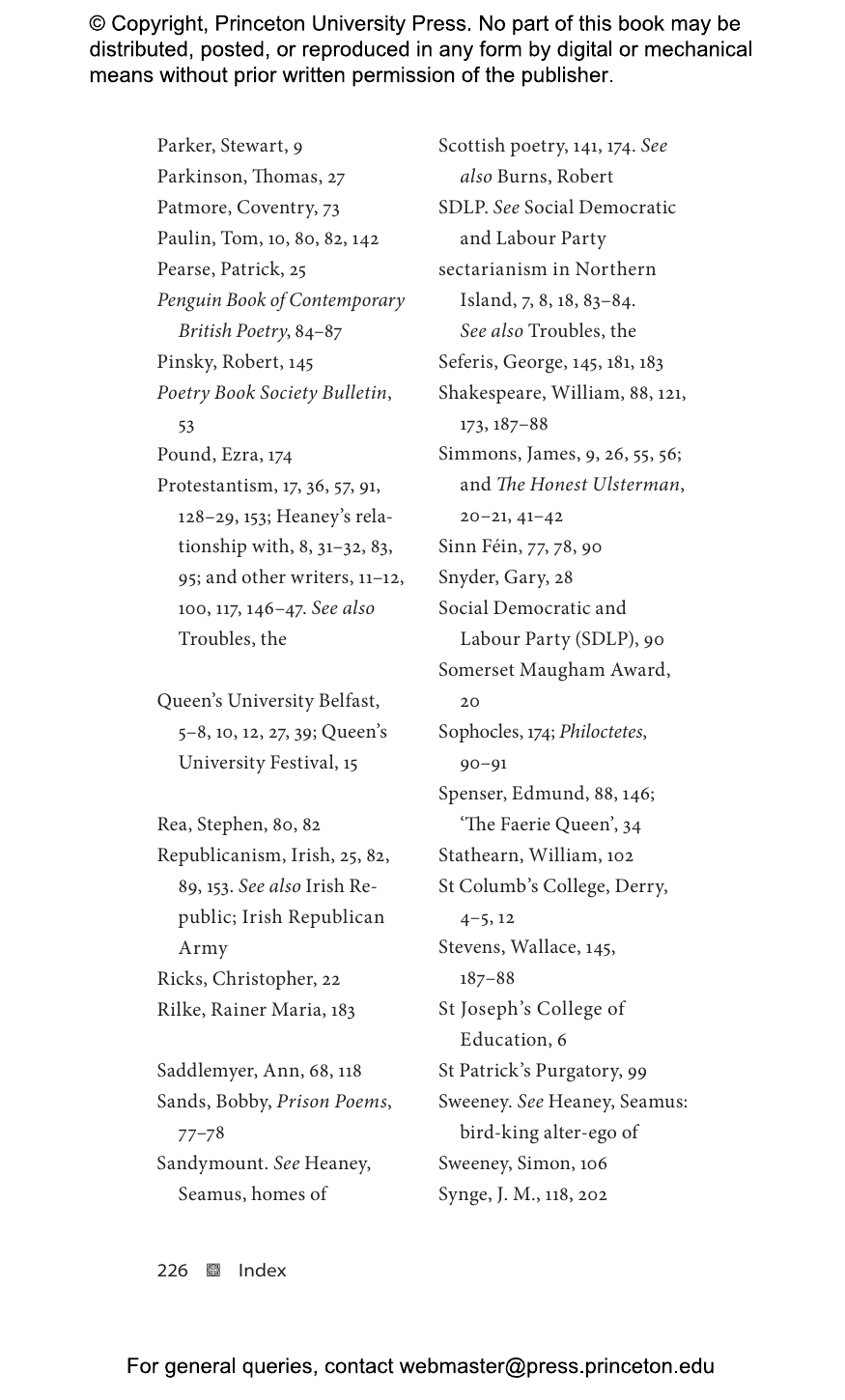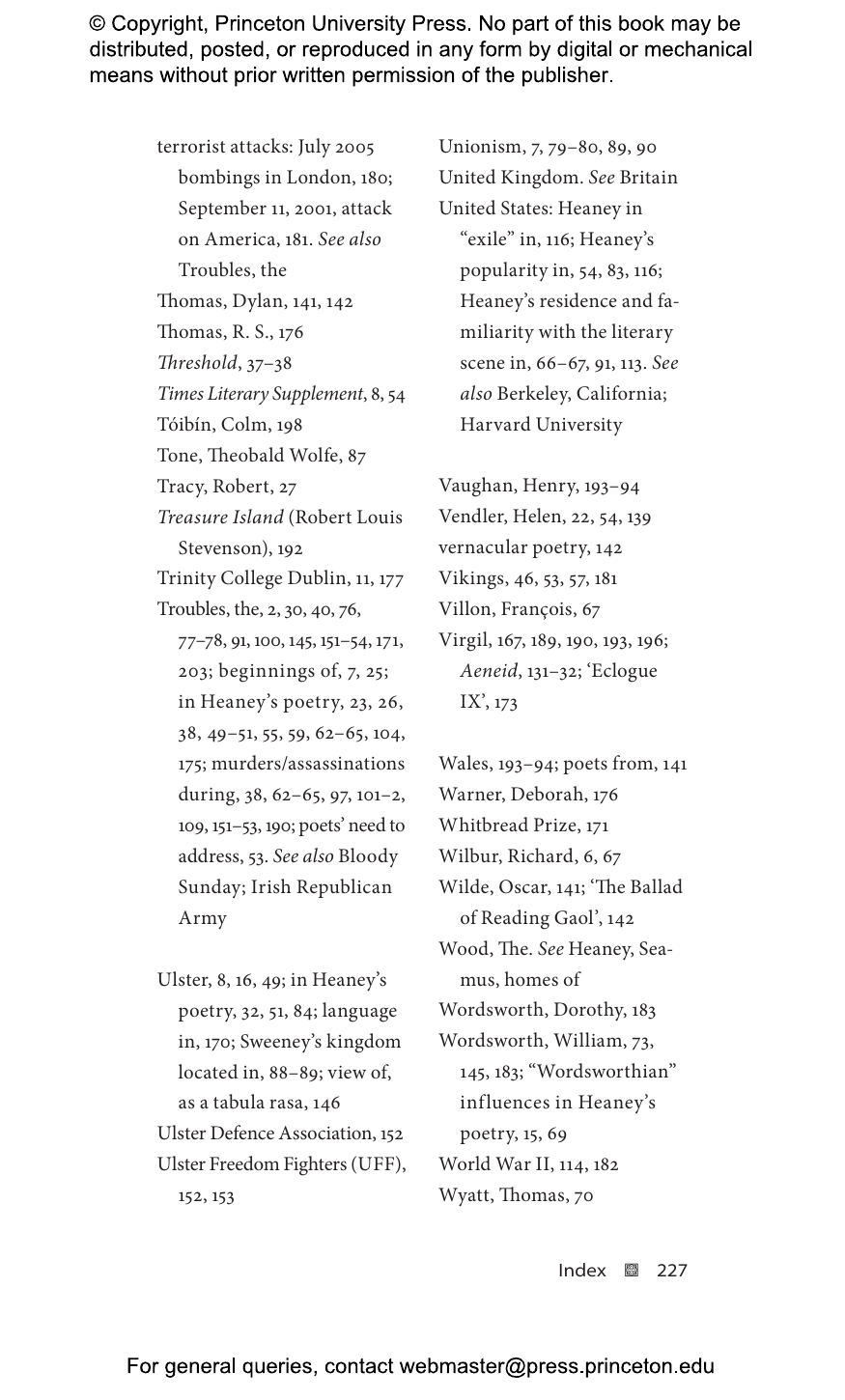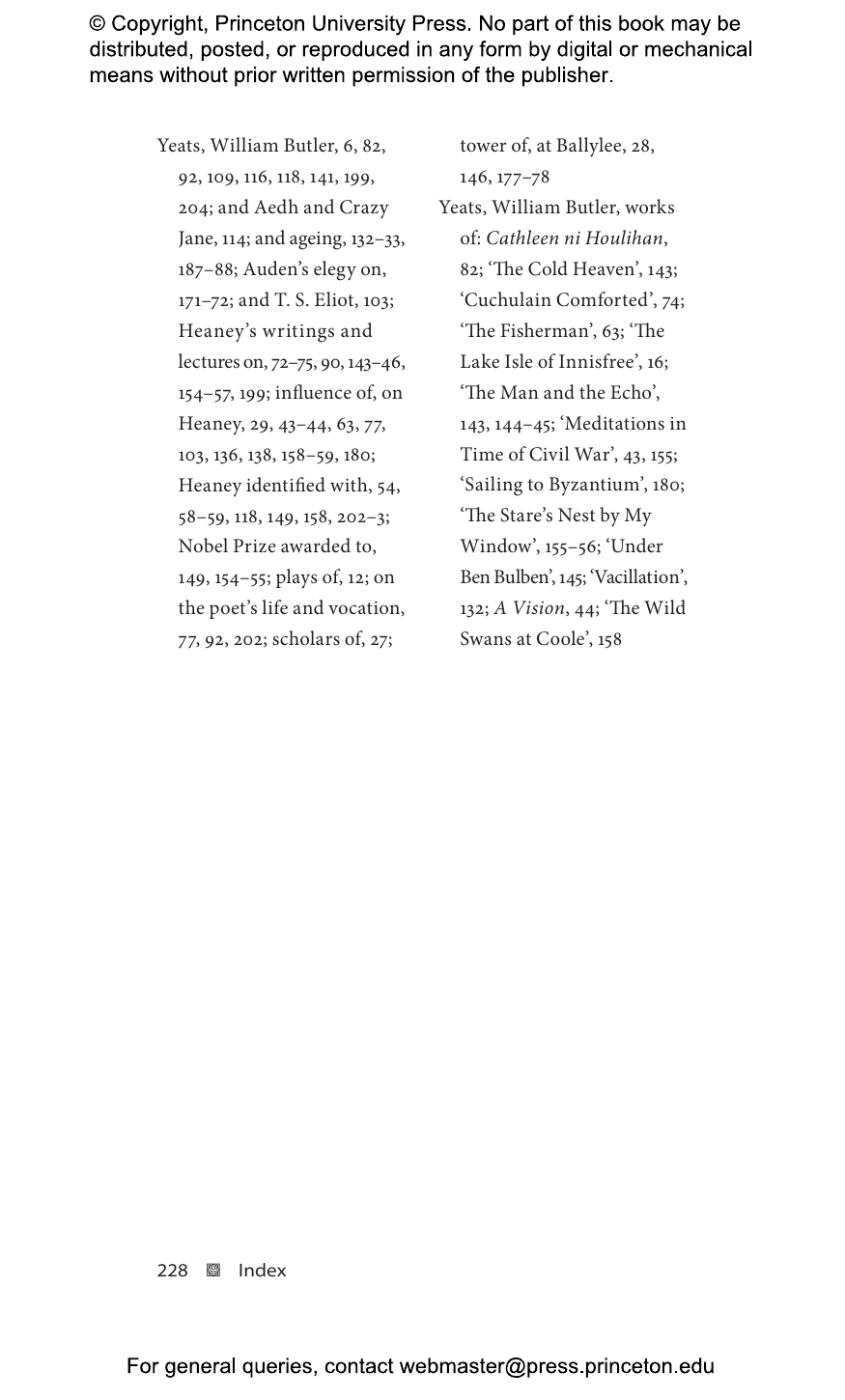The most important Irish poet of the postwar era, Seamus Heaney rose to prominence as his native Northern Ireland descended into sectarian violence. A national figure at a time when nationality was deeply contested, Heaney also won international acclaim, culminating in the Nobel Prize for Literature in 1995. In On Seamus Heaney, leading Irish historian and literary critic R. F. Foster gives an incisive and eloquent account of the poet and his work against the background of a changing Ireland.
Drawing on unpublished drafts and correspondence, Foster provides illuminating and personal interpretations of Heaney’s work. Though a deeply charismatic figure, Heaney refused to don the mantle of public spokesperson, and Foster identifies a deliberate evasiveness and creative ambiguity in his poetry. In this, and in Heaney’s evocation of a disappearing rural Ireland haunted by political violence, Foster finds parallels with the other towering figure of Irish poetry, W. B. Yeats. Foster also discusses Heaney’s cosmopolitanism, his support for dissident poets abroad, and his increasing focus in his later work on death and spiritual transcendence. Above all, Foster examines how Heaney created an extraordinary connection with an exceptionally wide readership, giving him an authority and power unique among contemporary writers.
Combining a vivid account of Heaney’s life and a compelling reading of his entire oeuvre, On Seamus Heaney extends our understanding of the man as it enriches our appreciation of his poetry.
Awards and Recognition
- One of the Financial Times' Best Books of 2020: Critics' Picks
"Foster’s characteristic brio brings Heaney to life again. . . . On Seamus Heaney, with its abundant account of his life, its illuminating analysis of his work, and the generous quotations from favourite poems, should find a place on bookshelves all over Ireland and beyond."—Clíona Ní Ríordáin, Irish Times
"A sparkling memorial to an utterly singular poet."—Sebastian Barry, Sydney Morning Herald
"[An] excellent new study."—James Parker, The Atlantic
"A compact but comprehensive guide."—Seamus Perry, London Review of Books
"This exploration of Heaney’s oeuvre, and the tumultuous times that inspired it, is an immensely enjoyable step towards giving Ireland’s great poet his due."—Maria Crawford, Financial Times
"There will be longer, fatter biographical and critical books about Seamus Heaney, but none will be better written, more knowledgeable, more generously understanding than this one."—Anne Chisholm, The Tablet
"One of the most elegant works of criticism I have ever read."—David Mason, Hudson Review
"Engrossing. . . . Undeniably impressive."—Hilary A. White, Irish Independent
"Foster brings long-felt passion and measured scholarship to his welcome analysis of the poetry of Seamus Heaney."—RTE
"A concise, meticulously researched account. . . . Foster couples forensic attention to detail with engaging prose."—Tara McEvoy, Times Literary Supplement
"More than [in] any other writing on Heaney, you actually get a sense of Heaney’s own personality, his charisma, his friendliness, his warmth, his humour and it’s a hugely respectful biography in that way because you get the sense of Heaney’s own words about himself that have not been made public before and you’ve got the impression, at least, of being in his company and that’s one of the things I was hoping for in the book and it certainly comes across."—Peter Mackay, BBC Radio 3 "Free Thinking"
"As one would expect of Foster, the suavest Irish historian of his generation, the handling of Irish contexts . . . is impeccable."—David Wheatley, Literary Review
"Foster's painstakingly researched and affectionately penned On Seamus Heaney offers an illuminating bite-sized refresher course on one of our greatest literary talents."—David Roy, Irish News
"[A] succinct but insightful critical biography that puts the poetry of Seamus Heaney (1939–2013) firmly in the context of his life and times. . . . This reflective and incisive study works both as an academic research aid and as an accessible primer for general poetry readers."—Publishers Weekly
"[A] careful and attentive poetic biography."—Peter Craven, Sydney Morning Herald
"A brief and brilliant study that weaves together the life and work of the Nobel Prize-winning Irish poet."—Sunil Khilnani, Open Magazine
"The joy of this book emanates from the sense of intimacy that Foster captures in each epoch, enabling readers to get a sense of Heaney’s personality. . . . This book is an essential complement to any study of Heaney’s poetry, as it creates a more comprehensive understanding of how life informs art."—Choice
"A timely perspective on the Northern Irish troubles as experienced and responded to in Heaney’s work."—Fiona O'Connor, Morning Star
"If a book on poetry can teach, Roy Foster’s new book about Ireland’s Nobel Prize poet Seamus Heaney shares it all."—Ronn Hartviksen, Chronicle Journal
"It is difficult to imagine how a brief, general, fair-minded introduction to Heaney might be bettered . . . . The book is more literary criticism than biography, although it effortlessly combines the two so that it’s difficult to say where one starts and the other ends, which suits Heaney down to the ground. Foster’s trademark elegance, clarity, and skill in shaping a narrative are to the fore, and he remains a more lucid and nuanced reader of Irish poetry than many specialized critics."—Alan Gillis, Irish University Review
"Writing with the restraint of the professional academic but with all the vim of a youthful enthusiast, R. F. Foster has published On Seamus Heaney, his take on the life and writings of one of Ireland’s famous poets . . . Foster has captured the young Heaney in a manner that readers can grasp fully, and the description is written in elevated language that is appropriate to the status of its subject. . . . I recommend this book very highly indeed."—Ian Lipke, Queensland Reviewers Collective
"[On Seamus Heaney] adds welcome layers to our understanding of Heaney as a poet and of the kind of public intellectual who attains moral standing in the wider world. . . . I hope that others who care about our literary inheritance will use On Seamus Heaney as a standard for writing about writing. Its combination of meticulousness and soul can only enrich our understanding."—Denise Provost, Somerville Times
"One of the finest books to date on Irish poet and Nobel laureate Seamus Heaney."—Daniel Picker, New Ulster
"A very good 'short book essay' on one of my favorite poets."—Tyler Cowen, Marginal Revolution
"[Foster’s] knowledge of Heaney is nothing short of encyclopedic. . . . An excellent roadmap for readers."—John Austin Gray, Fare Forward
"It’s not the done thing to choose a book of which I’m the dedicatee: even so, RF Foster’s On Seamus Heaney, which is short but runs deep, was for me the richest food for the spirit in 2020.
"—Jan Dalley, Financial Times
"R. F. Foster has herein written an altogether focused, and most vivid account of quite possibly the most important Irish poet of the postwar era."—David Marx, David Marx Book Reviews
"Roy Foster, in this perceptive and astute book, concentrates on the development of Seamus Heaney as a poet. He writes with care about the political and personal background, but the book's great achievement is Foster's sympathetic and intelligent analysis of the poems themselves and the imagination that created them."—Colm Tóibín, author of Brooklyn and Mad, Bad, Dangerous to Know: The Fathers of Wilde, Yeats, and Joyce
“A remarkably achieved yet compact reading of Seamus Heaney’s work, this is a wonderfully sustained, elegantly structured interpretation of a great poet. Readers will appreciate the sensitivity of the analyses and the way they are integrated into a deftly constructed narrative of Heaney’s career.”—Nicholas Grene, Trinity College, Dublin
“A brief, sharp, and wonderfully detailed account of Seamus Heaney, one of the most important poets of the past hundred years. R. F. Foster is both a distinguished historian of Ireland and an astute and subtle literary critic. His masterful book brings us close to a writer who far too often is held at a polite, admiring distance.”—Michael Wood, Princeton University
